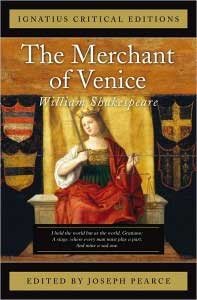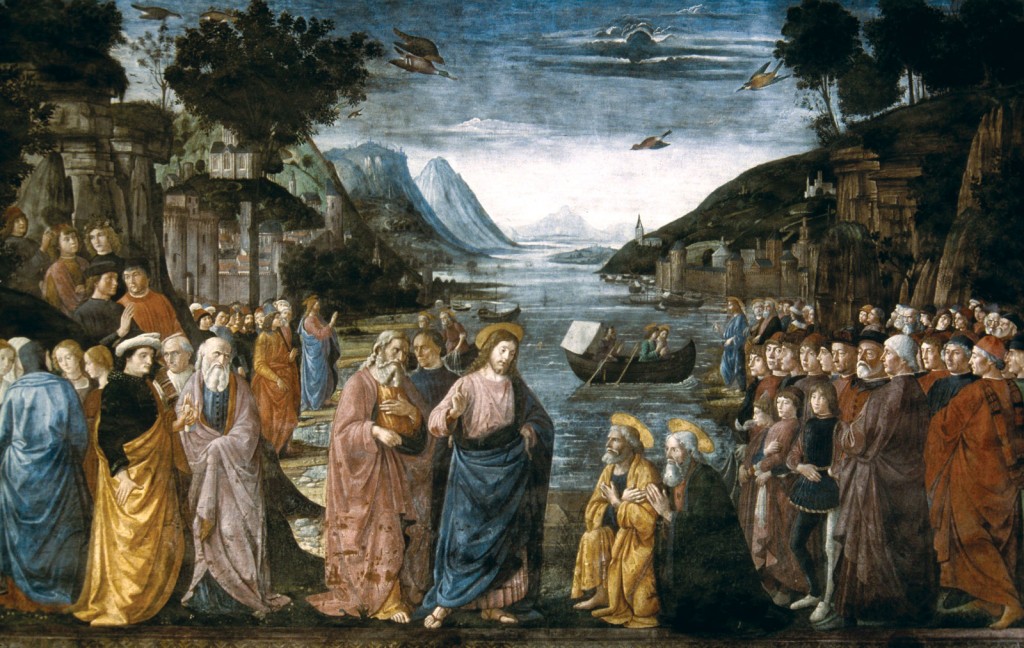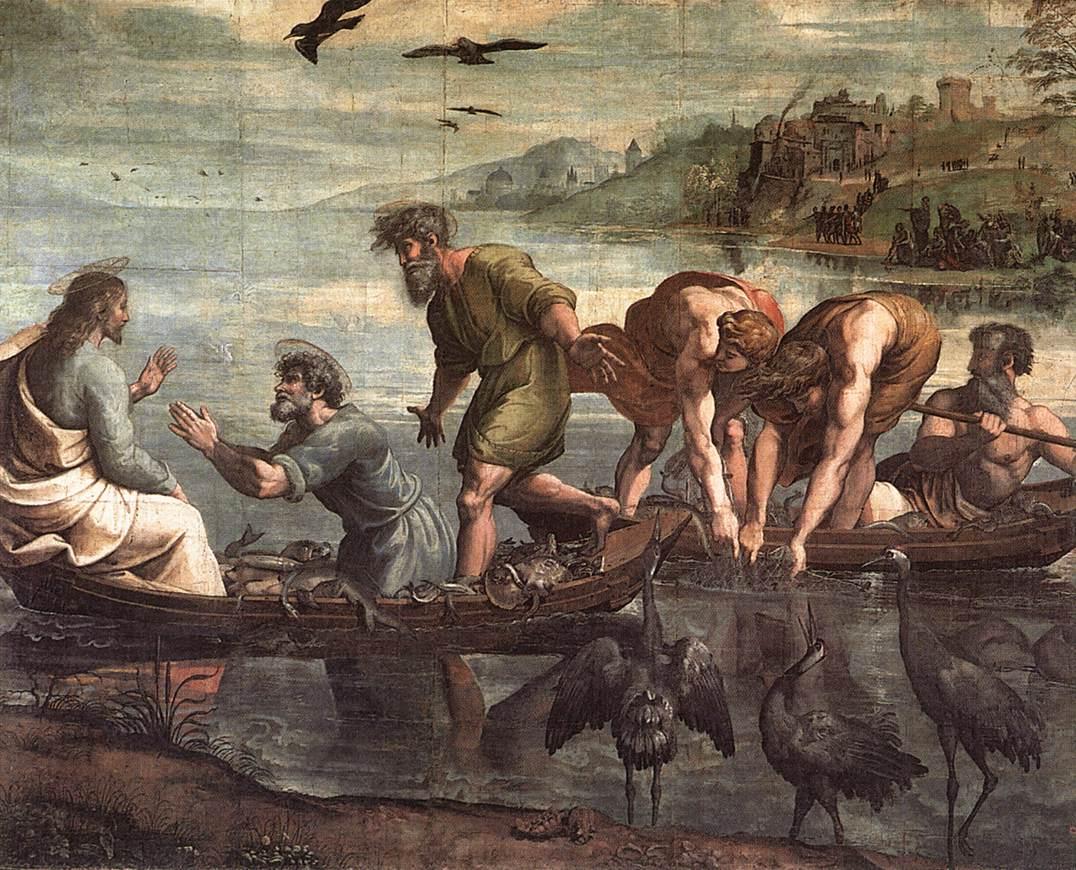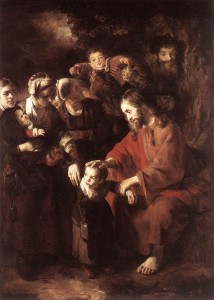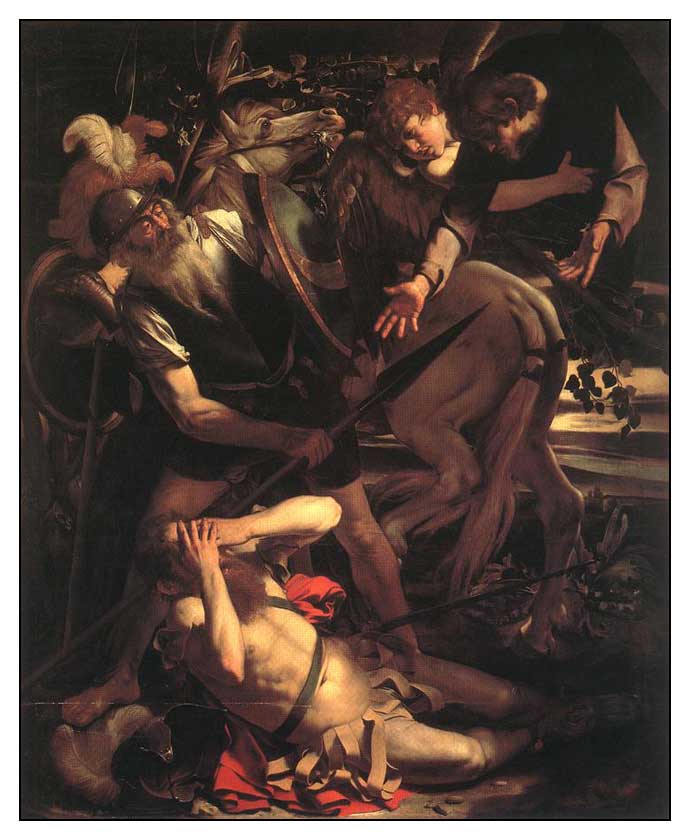The Popes
1. St. Peter (33-67)
2. St. Linus (67-76)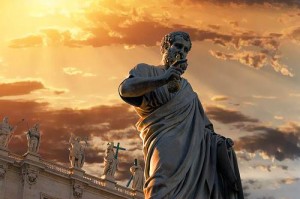
3. St. Anacletus (Cletus) (76-88)
4. St. Clement I (88-97)
5. St. Evaristus (97-105)
6. St. Alexander I (105-115)
7. St. Sixtus I (115-125) Also called Xystus I
8. St. Telesphorus (125-136)
9. St. Hyginus (136-140)
10. St. Pius I (140-155)
11. St. Anicetus (155-166)
12. St. Soter (166-175)
13. St. Eleutherius (175-189)
14. St. Victor I (189-199)
15. St. Zephyrinus (199-217)
16. St. Callistus I (217-222)
17. St. Urban I (222-30)
18. St. Pontain (230-35)
19. St. Anterus (235-36)
20. St. Fabian (236-50)
21. St. Cornelius (251-53)
22. St. Lucius I (253-54)
23. St. Stephen I (254-257)
24. St. Sixtus II (257-258)
25. St. Dionysius (260-268)
26. St. Felix I (269-274)
27. St. Eutychian (275-283)
28. St. Caius (283-296) Also called Gaius
29. St. Marcellinus (296-304)
30. St. Marcellus I (308-309)
31. St. Eusebius (309 or 310)
32. St. Miltiades (311-14)
33. St. Sylvester I (314-35)
34. St. Marcus (336)
35. St. Julius I (337-52)
36. Liberius (352-66)
37. St. Damasus I (366-83)
38. St. Siricius (384-99)
39. St. Anastasius I (399-401)
40. St. Innocent I (401-17)
41. St. Zosimus (417-18)
42. St. Boniface I (418-22)
43. St. Celestine I (422-32)
44. St. Sixtus III (432-40)
45. St. Leo I (the Great) (440-61)
46. St. Hilarius (461-68)
47. St. Simplicius (468-83)
48. St. Felix III (II) (483-92)
49. St. Gelasius I (492-96)
50. Anastasius II (496-98)
51. St. Symmachus (498-514)
52. St. Hormisdas (514-23)
53. St. John I (523-26)
54. St. Felix IV (III) (526-30)
55. Boniface II (530-32)
56. John II (533-35)
57. St. Agapetus I (535-36) Also called Agapitus I
58. St. Silverius (536-37)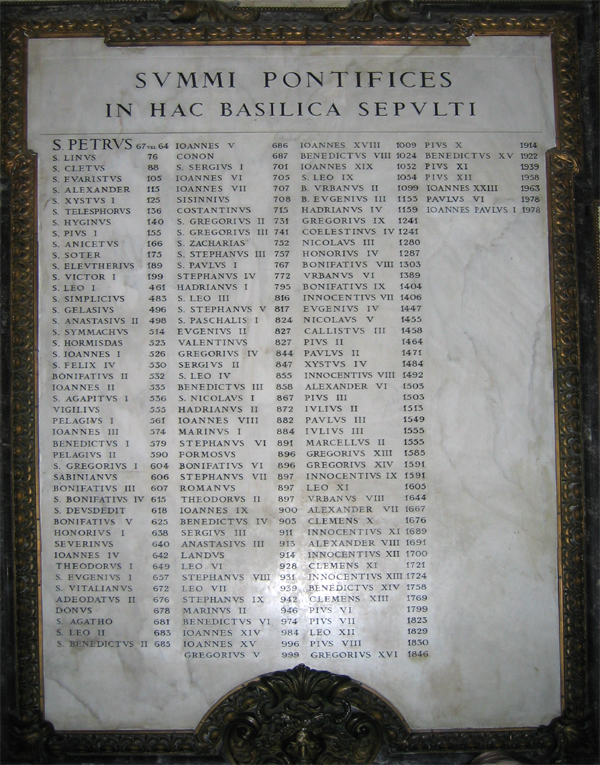
59. Vigilius (537-55)
60. Pelagius I (556-61)
61. John III (561-74)
62. Benedict I (575-79)
63. Pelagius II (579-90)
64. St. Gregory I (the Great) (590-604)
65. Sabinian (604-606)
66. Boniface III (607)
67. St. Boniface IV (608-15)
68. St. Deusdedit (Adeodatus I) (615-18)
69. Boniface V (619-25)
70. Honorius I (625-38)
71. Severinus (640)
72. John IV (640-42)
73. Theodore I (642-49)
74. St. Martin I (649-55)
75. St. Eugene I (655-57)
76. St. Vitalian (657-72)
77. Adeodatus (II) (672-76)
78. Donus (676-78)
79. St. Agatho (678-81)
80. St. Leo II (682-83)
81. St. Benedict II (684-85)
82. John V (685-86)
83. Conon (686-87)
84. St. Sergius I (687-701)
85. John VI (701-05)
86. John VII (705-07)
87. Sisinnius (708)
88. Constantine (708-15)
89. St. Gregory II (715-31)
90. St. Gregory III (731-41)
91. St. Zachary (741-52)
92. Stephen II (752) Because he died before being consecrated, many authoritative lists omit him
93. Stephen III (752-57)
94. St. Paul I (757-67)
95. Stephen IV (767-72)
96. Adrian I (772-95)
97. St. Leo III (795-816)
98. Stephen V (816-17)
99. St. Paschal I (817-24)
100. Eugene II (824-27)
101. Valentine (827)
102. Gregory IV (827-44)
103. Sergius II (844-47)
104. St. Leo IV (847-55)
105. Benedict III (855-58)
106. St. Nicholas I (the Great) (858-67)
107. Adrian II (867-72)
108. John VIII (872-82)
109. Marinus I (882-84)
110. St. Adrian III (884-85)
111. Stephen VI (885-91)
112. Formosus (891-96)
113. Boniface VI (896)
114. Stephen VII (896-97)
115. Romanus (897)
116. Theodore II (897)
117. John IX (898-900)
118. Benedict IV (900-03)
119. Leo V (903)
120. Sergius III (904-11)
121. Anastasius III (911-13)
122. Lando (913-14)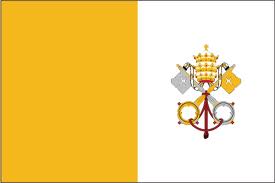
123. John X (914-28)
124. Leo VI (928)
125. Stephen VIII (929-31)
126. John XI (931-35)
127. Leo VII (936-39)
128. Stephen IX (939-42)
129. Marinus II (942-46)
130. Agapetus II (946-55)
131. John XII (955-63)
132. Leo VIII (963-64)
133. Benedict V (964)
134. John XIII (965-72)
135. Benedict VI (973-74)
136. Benedict VII (974-83)
137. John XIV (983-84)
138. John XV (985-96)
139. Gregory V (996-99)
140. Sylvester II (999-1003)
141. John XVII (1003)
142. John XVIII (1003-09)
143. Sergius IV (1009-12)
144. Benedict VIII (1012-24)
145. John XIX (1024-32)
146. Benedict IX (1032-45) He appears on this list three separate times, because he was twice deposed and restored
147. Sylvester III (1045) Considered by some to be an antipope
148. Benedict IX (1045)
149. Gregory VI (1045-46)
150. Clement II (1046-47)
151. Benedict IX (1047-48)
152. Damasus II (1048)
153. St. Leo IX (1049-54)
154. Victor II (1055-57)
155. Stephen X (1057-58)
156. Nicholas II (1058-61)
157. Alexander II (1061-73)
158. St. Gregory VII (1073-85)
159. Blessed Victor III (1086-87)
160. Blessed Urban II (1088-99)
161. Paschal II (1099-1118)
162. Gelasius II (1118-19)
163. Callistus II (1119-24)
164. Honorius II (1124-30)
165. Innocent II (1130-43)
166. Celestine II (1143-44)
167. Lucius II (1144-45)
168. Blessed Eugene III (1145-53)
169. Anastasius IV (1153-54)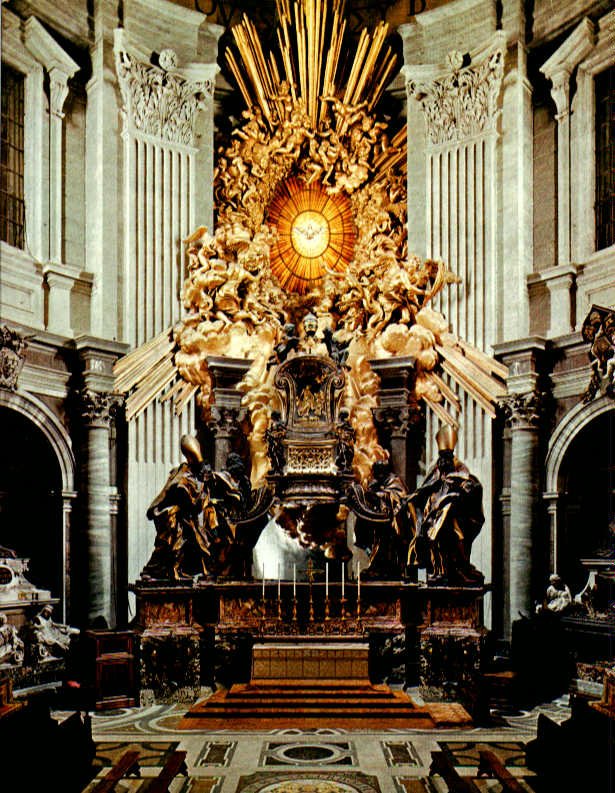
170. Adrian IV (1154-59)
171. Alexander III (1159-81)
172. Lucius III (1181-85)
173. Urban III (1185-87)
174. Gregory VIII (1187)
175. Clement III (1187-91)
176. Celestine III (1191-98)
177. Innocent III (1198-1216)
178. Honorius III (1216-27)
179. Gregory IX (1227-41)
180. Celestine IV (1241)
181. Innocent IV (1243-54)
182. Alexander IV (1254-61)
183. Urban IV (1261-64)
184. Clement IV (1265-68)
185. Blessed Gregory X (1271-76)
186. Blessed Innocent V (1276)
187. Adrian V (1276)
188. John XXI (1276-77)
189. Nicholas III (1277-80)
190. Martin IV (1281-85)
191. Honorius IV (1285-87)
192. Nicholas IV (1288-92)
193. St. Celestine V (1294)
194. Boniface VIII (1294-1303)
195. Blessed Benedict XI (1303-04)
196. Clement V (1305-14)
197. John XXII (1316-34)
198. Benedict XII (1334-42)
199. Clement VI (1342-52)
200. Innocent VI (1352-62)
201. Blessed Urban V (1362-70)
202. Gregory XI (1370-78)
203. Urban VI (1378-89)
204. Boniface IX (1389-1404)
205. Innocent VII (1404-06)
206. Gregory XII (1406-15)
207. Martin V (1417-31)
208. Eugene IV (1431-47)
209. Nicholas V (1447-55)
210. Callistus III (1455-58)
211. Pius II (1458-64)
212. Paul II (1464-71)
213. Sixtus IV (1471-84)
214. Innocent VIII (1484-92)
215. Alexander VI (1492-1503)
216. Pius III (1503)
217. Julius II (1503-13)
218. Leo X (1513-21)
219. Adrian VI (1522-23)
220. Clement VII (1523-34)
221. Paul III (1534-49)
222. Julius III (1550-55)
223. Marcellus II (1555)
224. Paul IV (1555-59)
225. Pius IV (1559-65)
226. St. Pius V (1566-72)
227. Gregory XIII (1572-85)
228. Sixtus V (1585-90)
229. Urban VII (1590)
230. Gregory XIV (1590-91)
231. Innocent IX (1591)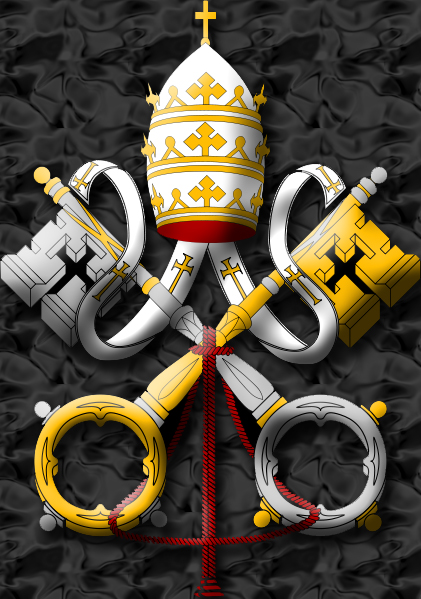
232. Clement VIII (1592-1605)
233. Leo XI (1605)
234. Paul V (1605-21)
235. Gregory XV (1621-23)
236. Urban VIII (1623-44)
237. Innocent X (1644-55)
238. Alexander VII (1655-67)
239. Clement IX (1667-69)
240. Clement X (1670-76)
241. Blessed Innocent XI (1676-89)
242. Alexander VIII (1689-91)
243. Innocent XII (1691-1700)
244. Clement XI (1700-21)
245. Innocent XIII (1721-24)
246. Benedict XIII (1724-30)
247. Clement XII (1730-40)
248. Benedict XIV (1740-58)
249. Clement XIII (1758-69)
250. Clement XIV (1769-74)
251. Pius VI (1775-99)
252. Pius VII (1800-23)
253. Leo XII (1823-29)
254. Pius VIII (1829-30)
255. Gregory XVI (1831-46)
256. Blessed Pius IX (1846-78)
257. Leo XIII (1878-1903)
258. St. Pius X (1903-14)
259. Benedict XV (1914-22)
260.Pius XI (1922-39)
261. Pius XII (1939-58)
262. Blessed John XXIII (1958-63)
263. Paul VI (1963-78)
264. John Paul I (1978)
265. John Paul II (1978-2005)
266. Benedict XVI (2005—)
The Chair of St. Peter – the gift of the Papacy – Discerning Hearts
Podcast: Play in new window | Download (Duration: 29:44 — 27.2MB) | Embed
Subscribe: Apple Podcasts | Spotify | Amazon Music | Android | Pandora | iHeartRadio | JioSaavn | Podchaser | Gaana | Podcast Index | Email | TuneIn | Deezer | Anghami | RSS | More
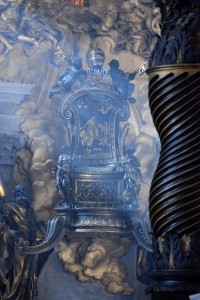 The Feast of the Chair of St. Peter is not so much a feast celebrating a “chair”, but more a feast celebrating what the chair symbolizes…the gift of the Papacy. I remember seeing it for the first time…not only the stunning piece used to preserve it by Bernini…but the whole altar piece setting at St. Peter’s…breathtaking. Almost every time I now see the presider’s chair at my local parish or the chair at our cathedral, I think of this chair, but also of the great unity it gives us with the entire Catholic Church under the leadership of the successor of St. Peter…our Holy Father. God bless the Holy Father, Pope Benedict XVI. Praise be to God for the gift of the Pa
The Feast of the Chair of St. Peter is not so much a feast celebrating a “chair”, but more a feast celebrating what the chair symbolizes…the gift of the Papacy. I remember seeing it for the first time…not only the stunning piece used to preserve it by Bernini…but the whole altar piece setting at St. Peter’s…breathtaking. Almost every time I now see the presider’s chair at my local parish or the chair at our cathedral, I think of this chair, but also of the great unity it gives us with the entire Catholic Church under the leadership of the successor of St. Peter…our Holy Father. God bless the Holy Father, Pope Benedict XVI. Praise be to God for the gift of the Pa pacy!
pacy!
Take a listen to Dr. Matthew Bunson talk to us about the importance of this feast in the podcast above.
Also here is the text from the Holy Father’s reflections on this feast from 2006 from Vatican.va
“On this rock I will build my Church’
Dear Brothers and Sisters,
Today, the Latin-rite liturgy celebrates the Feast of the Chair of St Peter. This is a very ancient tradition, proven to have existed in Rome since the fourth century. On it we give thanks to God for the mission he entrusted to the Apostle Peter and his Successors.
“Cathedra” literally means the established seat of the Bishop, placed in the mother church of a diocese which for this reason is known as a “cathedral”; it is the symbol of the Bishop’s authority and in particular, of his “magisterium”, that is, the evangelical teaching which, as a successor of the Apostles, he is called to safeguard and to transmit to the Christian Community.
When a Bishop takes possession of the particular Church that has been entrusted to him, wearing his mitre and holding the pastoral staff, he sits on the cathedra. From this seat, as teacher and pastor, he will guide the journey of the faithful in faith, hope and charity.
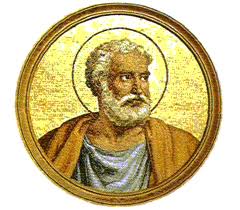 So what was the “Chair” of St Peter? Chosen by Christ as the “rock” on which to build the Church (cf. Mt 16: 18), he began his ministry in Jerusalem, after the Ascension of the Lord and Pentecost. The Church’s first “seat” was the Upper Room, and it is likely that a special place was reserved for Simon Peter in that room where Mary, Mother of Jesus, also prayed with the disciples. Therefore, we have the journey from Jerusalem, the newly born Church, to Antioch, the first centre of the Church formed from pagans and also still united with the Church that came from the Jews. Then Peter went to Rome, the centre of the Empire, the symbol of the “Orbis” – the “Urbs”, which expresses “Orbis”, the earth, where he ended his race at the service of the Gospel with martyrdom.
So what was the “Chair” of St Peter? Chosen by Christ as the “rock” on which to build the Church (cf. Mt 16: 18), he began his ministry in Jerusalem, after the Ascension of the Lord and Pentecost. The Church’s first “seat” was the Upper Room, and it is likely that a special place was reserved for Simon Peter in that room where Mary, Mother of Jesus, also prayed with the disciples. Therefore, we have the journey from Jerusalem, the newly born Church, to Antioch, the first centre of the Church formed from pagans and also still united with the Church that came from the Jews. Then Peter went to Rome, the centre of the Empire, the symbol of the “Orbis” – the “Urbs”, which expresses “Orbis”, the earth, where he ended his race at the service of the Gospel with martyrdom.
…This is testified by the most ancient Fathers of the Church, such as, for example, St Irenaeus, Bishop of Lyons, but who came from Asia Minor, who in his treatise Adversus Haereses, describes the Church of Rome as the “greatest and most ancient, known by all… founded and established in Rome by the two most glorious Apostles, Peter and Paul”; and he added: “The universal Church, that is, the faithful everywhere, must be in agreement with this Church because of her outstanding superiority” (III, 3, 2-3)….
Tertullian, a little later, said for his part: “How blessed is the Church of Rome, on which the Apostles poured forth all their doctrine along with their blood!” (De Praescriptione Hereticorum, 36).
Consequently, the Chair of the Bishop of Rome represents not only his service to the Roman community but also his mission as guide of the entire People of God.
Celebrating the “Chair” of Peter, therefore, as we are doing today, means attributing a strong spiritual significance to it and recognizing it as a privileged sign of the love of God, the eternal Good Shepherd, who wanted to gather his whole Church and lead her on the path of salvation.
Among the numerous testimonies of the Fathers, I would like to quote St Jerome’s. It is an extract from one of his letters, addressed to the Bishop of Rome. It is especially interesting precisely because it makes an explicit reference to the “Chair” of Peter, presenting it as a safe harbour of truth and peace.
This is what Jerome wrote: “I decided to consult the Chair of Peter, where that faith is found exalted by the lips of an Apostle; I now come to ask for nourishment for my soul there, where once I received the garment of Christ. I follow no leader save Christ, so I enter into communion with your beatitude, that is, with the Chair of Peter, for this I know is the rock upon which the Church is built” (cf. Le lettere I, 15, 1-2).
Dear brothers and sisters, in the apse of St Peter’s Basilica, as you know, is the monument to the Chair of the Apostle, a mature work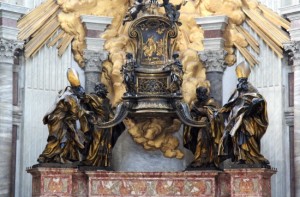 of Bernini. It is in the form of a great bronze throne supported by the statues of four Doctors of the Church: two from the West, St Augustine and St Ambrose, and two from the East: St John Chrysostom and St Athanasius.
of Bernini. It is in the form of a great bronze throne supported by the statues of four Doctors of the Church: two from the West, St Augustine and St Ambrose, and two from the East: St John Chrysostom and St Athanasius.
I invite you to pause before this evocative work which today can be admired, decorated with myriads of candles, and to say a special prayer for the ministry that God has entrusted to me. Raise your eyes to the alabaster glass window located directly above the Chair and call upon the Holy Spirit, so that with his enlightenment and power, he will always sustain my daily service to the entire Church. For this, as for your devoted attention, I thank you from my heart. –Vatican.va
RN-6 – Regnum Novum: Bringing forth the New Evangelization through Catholic Social Teaching with Omar Gutierrez Episode 6
Episode 6 – Regnum Novum: Bringing forth the New Evangelization through Catholic Social Teaching with Omar Guiterrez – Value 4 Truth, Freedom, Justice, and Love part 3 “Love”
– Value 4 Truth, Freedom, Justice, and Love part 3 “Love”
Discerning Hearts is blessed to present Omar F. A. Guiterrez, M.A. , Special Assistant to Archbishop George Lucas of the Archdiocese of Omaha, in a groundbreaking series which breaks open the heart of Catholic Social Doctrine.
We encourage you to visit “Regnum Novum – A New Kingdom: A Revolution” Omar Guiterrez’s blog site
 We live at a very special time. The confluence of many things has brought forth the clear need to be able to articulate the Social Teaching of the Catholic Church in a way that is accessible and applicable. This is not to be an effort where high-minded theories are to be bandied about. Rather, this is a time of opportunity wherein we can apply the Social Doctrine to the concrete so as to bring about a New Kingdom, a Revolution. – Omar G. from Regnum Novum
We live at a very special time. The confluence of many things has brought forth the clear need to be able to articulate the Social Teaching of the Catholic Church in a way that is accessible and applicable. This is not to be an effort where high-minded theories are to be bandied about. Rather, this is a time of opportunity wherein we can apply the Social Doctrine to the concrete so as to bring about a New Kingdom, a Revolution. – Omar G. from Regnum Novum
Podcast: Play in new window | Download (Duration: 27:54 — 25.5MB) | Embed Subscribe: Apple Podcasts | Spotify | Amazon Music | Android | Pandora | iHeartRadio | JioSaavn | Podchaser | Gaana | Podcast Index | Email | TuneIn | Deezer | Anghami | RSS | More
From episode … 6. Truth, Freedom, Justice, and Love part 3 “Love“
These are the four values of the Social Teaching of the Catholic Church as they’re enumerated in the Compendium and as they were laid out by, again, Blessed Pope John XXIII in Mater et magistra and Pacem in terris. Without these values, the work of social justice becomes an albatross around our necks. It pulls us down, threatening to poison all the work we do, no matter how well intentioned.
We are seeking to build a civilization of love. Love is an encounter with God. Love begets love, and the experience of love can heal many more wounds than can socio-economic trivialities.
(Truth, Freedom and Justice are covered in other episodes)
Also visit Omar’s “Discerning Hearts” page Catholic Social Teaching 101
RN-7 – Regnum Novum: Bringing forth the New Evangelization through Catholic Social Teaching with Omar Gutierrez Episode 7
Episode 7 – Regnum Novum: Bringing forth the New Evangelization through Catholic Social Teaching with Omar Guiterrez – Value 5 The Common Good, Universal Destination of Goods, Subsidiarity, Participation, Solidarity part 1
– Value 5 The Common Good, Universal Destination of Goods, Subsidiarity, Participation, Solidarity part 1
Podcast: Play in new window | Download (Duration: 27:58 — 19.2MB) | Embed
Subscribe: Apple Podcasts | Spotify | Amazon Music | Android | Pandora | iHeartRadio | JioSaavn | Podchaser | Gaana | Podcast Index | Email | TuneIn | Deezer | Anghami | RSS | More
Discerning Hearts is blessed to present Omar F. A. Guiterrez, M.A. , Special Assistant to Archbishop George Lucas of the Archdiocese of Omaha, in a groundbreaking series which breaks open the heart of Catholic Social Doctrine.
We encourage you to visit “Regnum Novum – A New Kingdom: A Revolution” Omar Guiterrez’s blog site
 We live at a very special time. The confluence of many things has brought forth the clear need to be able to articulate the Social Teaching of the Catholic Church in a way that is accessible and applicable. This is not to be an effort where high-minded theories are to be bandied about. Rather, this is a time of opportunity wherein we can apply the Social Doctrine to the concrete so as to bring about a New Kingdom, a Revolution. – Omar G. from Regnum Novum
We live at a very special time. The confluence of many things has brought forth the clear need to be able to articulate the Social Teaching of the Catholic Church in a way that is accessible and applicable. This is not to be an effort where high-minded theories are to be bandied about. Rather, this is a time of opportunity wherein we can apply the Social Doctrine to the concrete so as to bring about a New Kingdom, a Revolution. – Omar G. from Regnum Novum
From episode 7… Point 5: The Common Good, Universal Destination of Goods, Subsidiarity, Participation, Solidarity
These are the five principles laid out in the Compendium of the Social Doctrine of the Church. If we understand these principles, then the work of the Revolution can begin. We are made now for a New Kingdom with Christ as our King in all things. Let us discover this place together, and make the devil cringe and know the suffering of defeat.
In this episode we focus on “The Common Good”.
Also visit Omar’s “Discerning Hearts” page Catholic Social Teaching 101
GWML#11 William Shakespeare (Merchant of Venice and King Lear) – Great Works in Western Literature with Joseph Pearce – Discerning Hearts
Podcast: Play in new window | Download (Duration: 29:20 — 26.9MB) | Embed
Subscribe: Apple Podcasts | Spotify | Amazon Music | Android | Pandora | iHeartRadio | JioSaavn | Podchaser | Gaana | Podcast Index | Email | TuneIn | Deezer | Anghami | RSS | More
Episode 11 – Great Works in Western Literature with Joseph Pearce – William 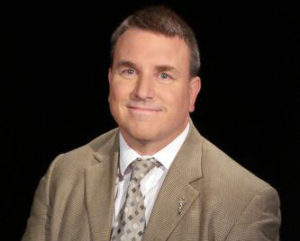 Shakespeare part 2
Shakespeare part 2
The Merchant of Venice is probably the most controversial of all Shakespeare’s plays. It is also one of the least understood. Is it a comedy or a tragedy? What is the meaning behind the test of the caskets? Who is the real villain of the trial scene? Is Shylock simply vicious and venomous, or is he more sinned against than sinning?
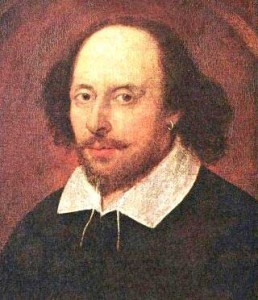 One of the most popular of Shakespeare’s plays, King Lear is also one of the most thought-provoking. The play turns on the practical ramifications of the words of Christ that we should render unto Caesar that which is Caesar’s, and unto God that which is God’s. When confronted with the demand that she should render unto Caesar that which is God’s, Cordelia chooses to “love and be silent”. As the play unfolds each of the principal characters learns wisdom through suffering.
One of the most popular of Shakespeare’s plays, King Lear is also one of the most thought-provoking. The play turns on the practical ramifications of the words of Christ that we should render unto Caesar that which is Caesar’s, and unto God that which is God’s. When confronted with the demand that she should render unto Caesar that which is God’s, Cordelia chooses to “love and be silent”. As the play unfolds each of the principal characters learns wisdom through suffering.
Based on the Ignatius Critical Edition, this series examines, from the Judeo-Christian perspective, the life, the times, and influence of authors of great works in literature .
Joseph Pearce is currently the Writer-in-Residence and Visiting Fellow at Thomas More College of Liberal Arts in Merrimack, New Hampshire. He is also Visiting Scholar at Mount Royal Academy in Sunapee, New Hampshire. He is also Visiting Scholar at Mount Royal Academy in Sunapee, New Hampshire. He is co-editor of the Saint Austin Review (or StAR), an international review of Christian culture, literature, and ideas published in England (Family Publications) and the United States (Sapientia Press). He is also the author of many books, including literary biographies of Solzhenitsyn, J. R. R. Tolkien, C. S. Lewis, G. K. Chesterton, and Oscar Wilde.
To learn more about the authors and titles available in the Ignatius Critical Editions
RN-9 – Regnum Novum: Bringing forth the New Evangelization through Catholic Social Teaching with Omar Gutierrez Episode 9
Episode 9- Regnum Novum: Bringing forth the New Evangelization through Catholic Social Teaching with Omar Guiterrez – Value 5 The Common Good, Universal Destination of Goods, Subsidiarity, Participation, Solidarity part 3
– Value 5 The Common Good, Universal Destination of Goods, Subsidiarity, Participation, Solidarity part 3
Podcast: Play in new window | Download (Duration: 28:33 — 26.1MB) | Embed
Subscribe: Apple Podcasts | Spotify | Amazon Music | Android | Pandora | iHeartRadio | JioSaavn | Podchaser | Gaana | Podcast Index | Email | TuneIn | Deezer | Anghami | RSS | More
These are the five principles laid out in the Compendium of the Social Doctrine of the Church. If we understand these principles, then the work of the Revolution can begin. We are made now for a New Kingdom with Christ as our King in all things. Let us discover this place together, and make the devil cringe and know the suffering of defeat. “Love”
Discerning Hearts is blessed to present Omar F. A. Guiterrez, M.A. , Special Assistant to Archbishop George Lucas of the Archdiocese of Omaha, in a groundbreaking series which breaks open the heart of Catholic Social Doctrine.
We encourage you to visit “Regnum Novum – A New Kingdom: A Revolution” Omar Guiterrez’s blog site
 We live at a very special time. The confluence of many things has brought forth the clear need to be able to articulate the Social Teaching of the Catholic Church in a way that is accessible and applicable. This is not to be an effort where high-minded theories are to be bandied about. Rather, this is a time of opportunity wherein we can apply the Social Doctrine to the concrete so as to bring about a New Kingdom, a Revolution. – Omar G. from Regnum Novum
We live at a very special time. The confluence of many things has brought forth the clear need to be able to articulate the Social Teaching of the Catholic Church in a way that is accessible and applicable. This is not to be an effort where high-minded theories are to be bandied about. Rather, this is a time of opportunity wherein we can apply the Social Doctrine to the concrete so as to bring about a New Kingdom, a Revolution. – Omar G. from Regnum Novum
From episode 9… Point 5: The Common Good, Universal Destination of Goods, Subsidiarity, Participation, Solidarity
These are the five principles laid out in the Compendium of the Social Doctrine of the Church. If we understand these principles, then the work of the Revolution can begin. We are made now for a New Kingdom with Christ as our King in all things. Let us discover this place together, and make the devil cringe and know the suffering of defeat.
In this episode we focus on “Subsidiarity”.
Also visit Omar’s “Discerning Hearts” page Catholic Social Teaching 101
RN-10 – Value #5 – part 4 – Participation – Regnum Novum w/Omar Gutierrez – Discerning Hearts Podcast
Podcast: Play in new window | Download (Duration: 27:56 — 19.2MB) | Embed
Subscribe: Apple Podcasts | Spotify | Amazon Music | Android | Pandora | iHeartRadio | JioSaavn | Podchaser | Gaana | Podcast Index | Email | TuneIn | Deezer | Anghami | RSS | More
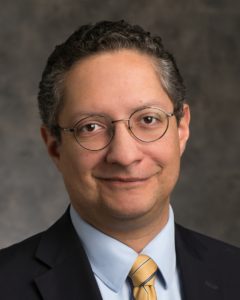
Value 5 – The Common Good, Universal Destination of Goods, Subsidiarity, Participation, Solidarity part 4
“Participation.”
These are the five principles laid out in the Compendium of the Social Doctrine of the Church. If we understand these principles, then the work of the Revolution can begin. We are made now for a New Kingdom with Christ as our King in all things. Let us discover this place together, and make the devil cringe and know the suffering of defeat.
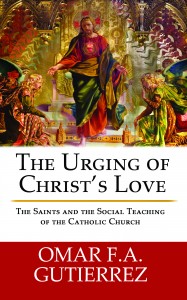 Deacon Omar F.A. Gutierrez is an Instructor for the Holy Family School of Faith Institute and Director of the Pontifical Society for the Propagation of the Faith for the Archdiocese of Omaha. He’s also the author of “The Urging of Christ’s Love: The Saints and The Social Teaching of the Catholic”
Deacon Omar F.A. Gutierrez is an Instructor for the Holy Family School of Faith Institute and Director of the Pontifical Society for the Propagation of the Faith for the Archdiocese of Omaha. He’s also the author of “The Urging of Christ’s Love: The Saints and The Social Teaching of the Catholic”
IJCY1 – Hearing God’s Voice – Is Jesus Calling You with Fr. Paul Hoesing – Discerning Hearts Podcast
Podcast: Play in new window | Download (Duration: 27:58 — 19.3MB) | Embed
Subscribe: Apple Podcasts | Spotify | Amazon Music | Android | Pandora | iHeartRadio | JioSaavn | Podchaser | Gaana | Podcast Index | Email | TuneIn | Deezer | Anghami | RSS | More
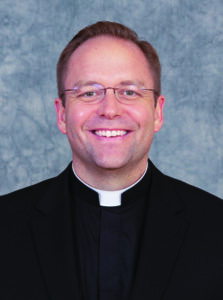
Hearing God’s Voice – Is Jesus Calling You with Fr. Paul Hoesing
Fr. Paul Hoesing and Kris McGregor discuss the process of discernment, particularly in the context of vocational calling, with a focus on priesthood but applicable to all vocations, using the booklet “Is Jesus Calling You to Be a Catholic Priest?” authored by Father Tom Richter.
Discernment involves more than decision-making; it’s about listening attentively to God’s voice amidst the noise of the world, the devil, and our own egos. Encountering Christ personally, especially through prayer and the sacraments, is the foundation of discernment.
Fr. Hoesing shares anecdotes and insights, such as the distinction between the voices of God and those of the world, and the significance of feelings of blessing and gratitude as indicators of God’s presence.
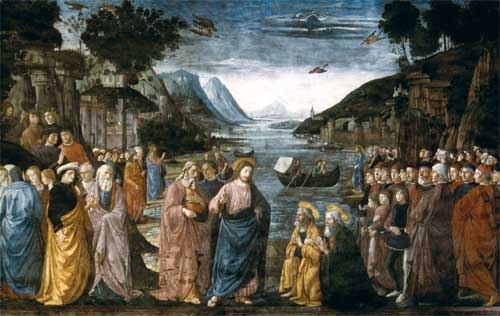
Discerning Hearts Reflection Questions:
- Encounter with Christ: Where have you encountered Christ in your life, and what impact has that encounter had on you?
- Gratitude and Blessings: Can you identify specific instances where you’ve felt blessed and grateful for God’s actions in your life?
- Discerning God’s Voice: How do you distinguish between the voice of God and other competing voices, such as those of the world, the devil, and your own ego?
- Personal Encounter with Christ: In what ways do you currently cultivate a personal encounter with Christ through prayer and the sacraments?
- Embracing God’s Call: How do you respond to the call of God in your life, whether it be towards priesthood, religious life, marriage, or another vocation?
- Seeking Guidance and Blessing: How can you seek guidance from God as you navigate your discernment journey
Based on “Is Jesus Calling You To Be A Catholic Priest: A helpful guide”, published by National Conference of Diocesan Vocation Director.
Fr. Paul Hoesing serves at Kenrick-Glennon Seminary as President Rector
WOM#5 – The Penitential Rite of the Mass – The Way of Mystery with Deacon James Keating episode 5 – Discerning Hearts
Episode 5 -The Way of Mystery: The Eucharist and Moral Living– The penitential rite of the mass, while not the pivotal point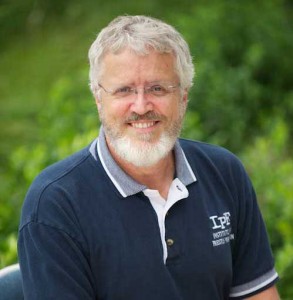 , it is one of the most important points of the mass, and key in our moral conversion…it’s about the crucifixion to sin, meeting evil with love.
, it is one of the most important points of the mass, and key in our moral conversion…it’s about the crucifixion to sin, meeting evil with love.
Podcast: Play in new window | Download (Duration: 28:24 — 26.0MB) | Embed
Subscribe: Apple Podcasts | Spotify | Amazon Music | Android | Pandora | iHeartRadio | JioSaavn | Podchaser | Gaana | Podcast Index | Email | TuneIn | Deezer | Anghami | RSS | More
Deacon James Keating, PhD, the director of Theological Formation for the Institute for Priestly Formation, located at Creighton University, in Omaha, is making available to ”Discerning Hearts” and all who listen, his series of programs entitled “The Way of Mystery”.
 The Vatican II documents remind us that the spiritual journey is not made in a vacuum, that God has chosen to save us, not individually, but as The People of God. The Eucharist must help Christians to make their choices by discerning out of Christ’s paschal mystery. For this process to take place, however, Christians must first understand how the Eucharist puts them in touch with Christ’s passion, death, and resurrection, and what concrete implications being in touch with this mystery has for their daily lives.
The Vatican II documents remind us that the spiritual journey is not made in a vacuum, that God has chosen to save us, not individually, but as The People of God. The Eucharist must help Christians to make their choices by discerning out of Christ’s paschal mystery. For this process to take place, however, Christians must first understand how the Eucharist puts them in touch with Christ’s passion, death, and resurrection, and what concrete implications being in touch with this mystery has for their daily lives.
For more information on the “Institute of Priestly Formation” and for other material available by Deacon Keating, just click here
Don’t forget to pickup a copy of “Communion with Christ” , it is one of the best audio sets on prayer…ever!
WOM#1 – The Centrality of the Eucharist – The Way of Mystery with Deacon James Keating – Discerning Hearts
Episode 1 -The Centrality of the Eucharist -The Way of Mystery: The Eucharist and Moral Living– Placing the 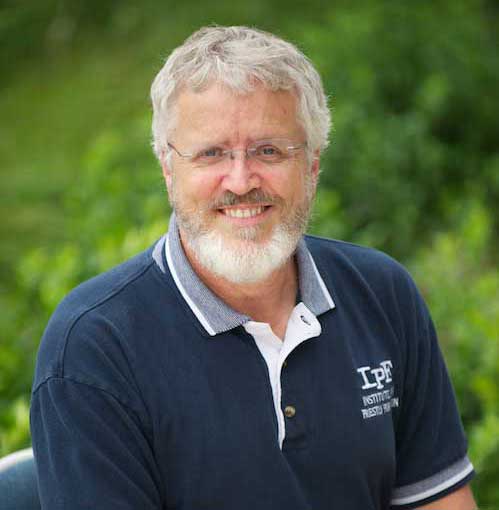 Eucharist as the center of who we are as Catholics part 1
Eucharist as the center of who we are as Catholics part 1
Podcast: Play in new window | Download (Duration: 28:10 — 64.5MB) | Embed
Subscribe: Apple Podcasts | Spotify | Amazon Music | Android | Pandora | iHeartRadio | JioSaavn | Podchaser | Gaana | Podcast Index | Email | TuneIn | Deezer | Anghami | RSS | More
Deacon James Keating, PhD, the director of Theological Formation for the Institute for Priestly Formation, located at Creighton University, in Omaha, is making available to ”Discerning Hearts” and all who listen, his series of programs entitled “The Way of Mystery”.
 The Vatican II documents remind us that the spiritual journey is not made in a vacuum, that God has chosen to save us, not individually, but as The People of God. The Eucharist must help Christians to make their choices by discerning out of Christ’s paschal mystery. For this process to take place, however, Christians must first understand how the Eucharist puts them in touch with Christ’s passion, death, and resurrection, and what concrete implications being in touch with this mystery has for their daily lives.
The Vatican II documents remind us that the spiritual journey is not made in a vacuum, that God has chosen to save us, not individually, but as The People of God. The Eucharist must help Christians to make their choices by discerning out of Christ’s paschal mystery. For this process to take place, however, Christians must first understand how the Eucharist puts them in touch with Christ’s passion, death, and resurrection, and what concrete implications being in touch with this mystery has for their daily lives.
For more information on the “Institute of Priestly Formation” and for other material available by Deacon Keating, just click here
Don’t forget to pickup a copy of “Communion with Christ” , it is one of the best audio sets on prayer…ever!
WOM#2 – The Centrality of the Eucharist pt 2- The Way of Mystery with Deacon James Keating – Discerning Hearts
Episode 2 -The Centrality of the Eucharist -The Way of Mystery: The Eucharist and Moral Living– Placing the  Eucharist as the center of who we are as Catholics part 2
Eucharist as the center of who we are as Catholics part 2
Podcast: Play in new window | Download (26.0MB) | Embed
Subscribe: Apple Podcasts | Spotify | Amazon Music | Android | Pandora | iHeartRadio | JioSaavn | Podchaser | Gaana | Podcast Index | Email | TuneIn | Deezer | Anghami | RSS | More
Deacon James Keating, PhD, the director of Theological Formation for the Institute for Priestly Formation, located at Creighton University, in Omaha, is making available to ”Discerning Hearts” and all who listen, his series of programs entitled “The Way of Mystery”.
 The Vatican II documents remind us that the spiritual journey is not made in a vacuum, that God has chosen to save us, not individually, but as The People of God. The Eucharist must help Christians to make their choices by discerning out of Christ’s paschal mystery. For this process to take place, however, Christians must first understand how the Eucharist puts them in touch with Christ’s passion, death, and resurrection, and what concrete implications being in touch with this mystery has for their daily lives.
The Vatican II documents remind us that the spiritual journey is not made in a vacuum, that God has chosen to save us, not individually, but as The People of God. The Eucharist must help Christians to make their choices by discerning out of Christ’s paschal mystery. For this process to take place, however, Christians must first understand how the Eucharist puts them in touch with Christ’s passion, death, and resurrection, and what concrete implications being in touch with this mystery has for their daily lives.
For more information on the “Institute of Priestly Formation” and for other material available by Deacon Keating, just click here
Don’t forget to pickup a copy of “Communion with Christ” , it is one of the best audio sets on prayer…ever!
WOM#5 – The Penitential Rite – The Way of Mystery w/ Deacon James Keating – Discerning Hearts
Episode 5 -The Way of Mystery: The Eucharist and Moral Living 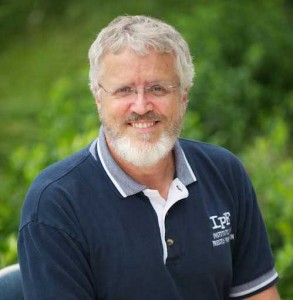
The penitential rite of the mass, while not the pivotal point, it is one of the most important points of the mass, and key in our moral conversion…it’s about the crucifixion to sin, meeting evil with love.
Podcast: Play in new window | Download (Duration: 27:57 — 25.6MB) | Embed
Subscribe: Apple Podcasts | Spotify | Amazon Music | Android | Pandora | iHeartRadio | JioSaavn | Podchaser | Gaana | Podcast Index | Email | TuneIn | Deezer | Anghami | RSS | More
For more episodes in “The Way of Mystery” Series click here
Deacon James Keating, PhD, the director of Theological Formation for the Institute for Priestly Formation, located at Creighton University, in Omaha, is making available to ”Discerning Hearts” and all who listen, his series of programs entitled “The Way of Mystery”.
 The Vatican II documents remind us that the spiritual journey is not made in a vacuum, that God has chosen to save us, not individually, but as The People of God. The Eucharist must help Christians to make their choices by discerning out of Christ’s paschal mystery. For this process to take place, however, Christians must first understand how the Eucharist puts them in touch with Christ’s passion, death, and resurrection, and what concrete implications being in touch with this mystery has for their daily lives.
The Vatican II documents remind us that the spiritual journey is not made in a vacuum, that God has chosen to save us, not individually, but as The People of God. The Eucharist must help Christians to make their choices by discerning out of Christ’s paschal mystery. For this process to take place, however, Christians must first understand how the Eucharist puts them in touch with Christ’s passion, death, and resurrection, and what concrete implications being in touch with this mystery has for their daily lives.
For more information on the “Institute of Priestly Formation” and for other material available by Deacon Keating, just click here
Don’t forget to pickup a copy of “Communion with Christ” , it is one of the best audio sets on prayer…ever!
WOM#11 – The Eucharistic Prayer – The Way of Mystery w/ Deacon James Keating – Discerning Hearts
Episode 11 -The Way of Mystery: The Eucharist and Moral Living 
The Liturgy of the Eucharist part 3 : The Eucharistic Prayer…God teaching us to pray. What are we doing in our participation and are we truly ready to receive the Body of Christ? Should we, in integrity, receive the Truth of Christ in Communion…do we really believe?
Podcast: Play in new window | Download (Duration: 28:18 — 25.9MB) | Embed
Subscribe: Apple Podcasts | Spotify | Amazon Music | Android | Pandora | iHeartRadio | JioSaavn | Podchaser | Gaana | Podcast Index | Email | TuneIn | Deezer | Anghami | RSS | More
For more episodes in “The Way of Mystery” Series click here
Deacon James Keating, PhD, the director of Theological Formation for the Institute for Priestly Formation, located at Creighton University, in Omaha, is making available to ”Discerning Hearts” and all who listen, his series of programs entitled “The Way of Mystery”.
 The Vatican II documents remind us that the spiritual journey is not made in a vacuum, that God has chosen to save us, not individually, but as The People of God. The Eucharist must help Christians to make their choices by discerning out of Christ’s paschal mystery. For this process to take place, however, Christians must first understand how the Eucharist puts them in touch with Christ’s passion, death, and resurrection, and what concrete implications being in touch with this mystery has for their daily lives.
The Vatican II documents remind us that the spiritual journey is not made in a vacuum, that God has chosen to save us, not individually, but as The People of God. The Eucharist must help Christians to make their choices by discerning out of Christ’s paschal mystery. For this process to take place, however, Christians must first understand how the Eucharist puts them in touch with Christ’s passion, death, and resurrection, and what concrete implications being in touch with this mystery has for their daily lives.
For more information on the “Institute of Priestly Formation” and for other material available by Deacon Keating, just click here
Don’t forget to pickup a copy of “Communion with Christ” , it is one of the best audio sets on prayer…ever!
WOM#12 – The Communion Rite – The Way of Mystery w/ Deacon James Keating – Discerning Hearts
Episode 12-The Way of Mystery: The Eucharist and Moral Living 
The Liturgy of the Eucharist part 4 : the Communion Rite…The moment of radical surrender…can we do it? We when come forward to communion, what are doing…what are we saying? Will we allow ourselves to be transformed? The moment of silence…will we allow ourselves to be transformed within so we can go out to transform the culture for Christ?
Podcast: Play in new window | Download (Duration: 28:21 — 26.0MB) | Embed
Subscribe: Apple Podcasts | Spotify | Amazon Music | Android | Pandora | iHeartRadio | JioSaavn | Podchaser | Gaana | Podcast Index | Email | TuneIn | Deezer | Anghami | RSS | More
For more episodes in “The Way of Mystery” Series click here
Deacon James Keating, PhD, the director of Theological Formation for the Institute for Priestly Formation, located at Creighton University, in Omaha, is making available to ”Discerning Hearts” and all who listen, his series of programs entitled “The Way of Mystery”.
 The Vatican II documents remind us that the spiritual journey is not made in a vacuum, that God has chosen to save us, not individually, but as The People of God. The Eucharist must help Christians to make their choices by discerning out of Christ’s paschal mystery. For this process to take place, however, Christians must first understand how the Eucharist puts them in touch with Christ’s passion, death, and resurrection, and what concrete implications being in touch with this mystery has for their daily lives.
The Vatican II documents remind us that the spiritual journey is not made in a vacuum, that God has chosen to save us, not individually, but as The People of God. The Eucharist must help Christians to make their choices by discerning out of Christ’s paschal mystery. For this process to take place, however, Christians must first understand how the Eucharist puts them in touch with Christ’s passion, death, and resurrection, and what concrete implications being in touch with this mystery has for their daily lives.
For more information on the “Institute of Priestly Formation” and for other material available by Deacon Keating, just click here
Don’t forget to pickup a copy of “Communion with Christ” , it is one of the best audio sets on prayer…ever!
WOM#13 – Purgative and Illuminative Way – The Way of Mystery w/ Deacon James Keating – Discerning Hearts
Episode 13-The Way of Mystery: The Eucharist and Moral Living 
The spiritual life and moral living… understanding the journey through the Purgative and Illuminative Way and their role in the moral life.
Podcast: Play in new window | Download (Duration: 28:21 — 26.0MB) | Embed
Subscribe: Apple Podcasts | Spotify | Amazon Music | Android | Pandora | iHeartRadio | JioSaavn | Podchaser | Gaana | Podcast Index | Email | TuneIn | Deezer | Anghami | RSS | More
For more episodes in “The Way of Mystery” Series click here
Deacon James Keating, PhD, the director of Theological Formation for the Institute for Priestly Formation, located at Creighton University, in Omaha, is making available to ”Discerning Hearts” and all who listen, his series of programs entitled “The Way of Mystery”.
 The Vatican II documents remind us that the spiritual journey is not made in a vacuum, that God has chosen to save us, not individually, but as The People of God. The Eucharist must help Christians to make their choices by discerning out of Christ’s paschal mystery. For this process to take place, however, Christians must first understand how the Eucharist puts them in touch with Christ’s passion, death, and resurrection, and what concrete implications being in touch with this mystery has for their daily lives.
The Vatican II documents remind us that the spiritual journey is not made in a vacuum, that God has chosen to save us, not individually, but as The People of God. The Eucharist must help Christians to make their choices by discerning out of Christ’s paschal mystery. For this process to take place, however, Christians must first understand how the Eucharist puts them in touch with Christ’s passion, death, and resurrection, and what concrete implications being in touch with this mystery has for their daily lives.
For more information on the “Institute of Priestly Formation” and for other material available by Deacon Keating, just click here
Don’t forget to pickup a copy of “Communion with Christ” , it is one of the best audio sets on prayer…ever!
WOM#14 – The Eucharist: What if I can’t receive? – The Way of Mystery w/ Deacon James Keating – Discerning Hearts
Episode 14-The Way of Mystery: The Eucharist and Moral Living 
The Eucharist summons us like a beacon. Even in the face of scandal, the moral authority of the Church shines through the Eucharist and challenges us to follow Christ in moving forward and allowing our hearts to be transformed. Mortal sin, what is it and how does it effect our relationship with the Eucharist…with Christ? Being present at mass even if you shouldn’t receive…not allowing yourself to be separated from worship.
Podcast: Play in new window | Download (Duration: 28:25 — 26.0MB) | Embed
Subscribe: Apple Podcasts | Spotify | Amazon Music | Android | Pandora | iHeartRadio | JioSaavn | Podchaser | Gaana | Podcast Index | Email | TuneIn | Deezer | Anghami | RSS | More
For more episodes in “The Way of Mystery” Series click here
Deacon James Keating, PhD, the director of Theological Formation for the Institute for Priestly Formation, located at Creighton University, in Omaha, is making available to ”Discerning Hearts” and all who listen, his series of programs entitled “The Way of Mystery”.
 The Vatican II documents remind us that the spiritual journey is not made in a vacuum, that God has chosen to save us, not individually, but as The People of God. The Eucharist must help Christians to make their choices by discerning out of Christ’s paschal mystery. For this process to take place, however, Christians must first understand how the Eucharist puts them in touch with Christ’s passion, death, and resurrection, and what concrete implications being in touch with this mystery has for their daily lives.
The Vatican II documents remind us that the spiritual journey is not made in a vacuum, that God has chosen to save us, not individually, but as The People of God. The Eucharist must help Christians to make their choices by discerning out of Christ’s paschal mystery. For this process to take place, however, Christians must first understand how the Eucharist puts them in touch with Christ’s passion, death, and resurrection, and what concrete implications being in touch with this mystery has for their daily lives.
For more information on the “Institute of Priestly Formation” and for other material available by Deacon Keating, just click here
Don’t forget to pickup a copy of “Communion with Christ” , it is one of the best audio sets on prayer…ever!
WOM#1 – Deacon James Keating – Way of Mystery episode 1 from Resting On the Heart of Christ
Episode 1 -The Way of Mystery: The Eucharist and Moral Living– Placing the Eucharist as the center of who we are as Catholics part 1
Podcast: Play in new window | Download (Duration: 27:43 — 19.1MB) | Embed
Subscribe: Apple Podcasts | Spotify | Amazon Music | Android | Pandora | iHeartRadio | JioSaavn | Podchaser | Gaana | Podcast Index | Email | TuneIn | Deezer | Anghami | RSS | More

Deacon James Keating, PhD, the director of Theological Formation for the Institute for Priestly Formation, located at Creighton University, in Omaha, is making available to ”Discerning Hearts” and all who listen, his series of programs entitled “The Way of Mystery”.
 The Vatican II documents remind us that the spiritual journey is not made in a vacuum, that God has chosen to save us, not individually, but as The People of God. The Eucharist must help Christians to make their choices by discerning out of Christ’s paschal mystery. For this process to take place, however, Christians must first understand how the Eucharist puts them in touch with Christ’s passion, death, and resurrection, and what concrete implications being in touch with this mystery has for their daily lives.
The Vatican II documents remind us that the spiritual journey is not made in a vacuum, that God has chosen to save us, not individually, but as The People of God. The Eucharist must help Christians to make their choices by discerning out of Christ’s paschal mystery. For this process to take place, however, Christians must first understand how the Eucharist puts them in touch with Christ’s passion, death, and resurrection, and what concrete implications being in touch with this mystery has for their daily lives.
For more information on the “Institute of Priestly Formation” and for other material available by Deacon Keating, just click here
Don’t forget to pickup a copy of “Communion with Christ” , it is one of the best audio sets on prayer…ever!
WOM#2 – Deacon James Keating – Way of Mystery episode 2 from Resting On the Heart of Christ
Episode 2 -The Way of Mystery: The Eucharist and Moral Living– Placing the Eucharist as the center of who we are as Catholics part 2
Podcast: Play in new window | Download (Duration: 31:08 — 21.4MB) | Embed
Subscribe: Apple Podcasts | Spotify | Amazon Music | Android | Pandora | iHeartRadio | JioSaavn | Podchaser | Gaana | Podcast Index | Email | TuneIn | Deezer | Anghami | RSS | More

Deacon James Keating, PhD, the director of Theological Formation for the Institute for Priestly Formation, located at Creighton University, in Omaha, is making available to ”Discerning Hearts” and all who listen, his series of programs entitled “The Way of Mystery”.
 The Vatican II documents remind us that the spiritual journey is not made in a vacuum, that God has chosen to save us, not individually, but as The People of God. The Eucharist must help Christians to make their choices by discerning out of Christ’s paschal mystery. For this process to take place, however, Christians must first understand how the Eucharist puts them in touch with Christ’s passion, death, and resurrection, and what concrete implications being in touch with this mystery has for their daily lives.
The Vatican II documents remind us that the spiritual journey is not made in a vacuum, that God has chosen to save us, not individually, but as The People of God. The Eucharist must help Christians to make their choices by discerning out of Christ’s paschal mystery. For this process to take place, however, Christians must first understand how the Eucharist puts them in touch with Christ’s passion, death, and resurrection, and what concrete implications being in touch with this mystery has for their daily lives.
For more information on the “Institute of Priestly Formation” and for other material available by Deacon Keating, just click here
Don’t forget to pickup a copy of “Communion with Christ”, it is one of the best audio sets on prayer…ever!
WOM5 – The Penitential Rite – The Way of Mystery with Deacon James Keating – Discerning Hearts Podcast
Podcast: Play in new window | Download (Duration: 29:01 — 19.9MB) | Embed
Subscribe: Apple Podcasts | Spotify | Amazon Music | Android | Pandora | iHeartRadio | JioSaavn | Podchaser | Gaana | Podcast Index | Email | TuneIn | Deezer | Anghami | RSS | More
 Episode 5 – The Penitential Rite
Episode 5 – The Penitential Rite
The penitential rite of the mass, while not the pivotal point, it is one of the most important points of the mass, and key in our moral conversion…it’s about the crucifixion to sin, meeting evil with love.
Deacon James Keating, Ph.D., the director of Theological Formation for the Institute for Priestly Formation, located at Creighton University, in Omaha.
The Vatican II documents remind us that the spiritual journey is not made in a vacuum. God has chosen to save us, not individually, but as The People of God. The Eucharist must help Christians to make their choices by discerning out of Christ’s paschal mystery. For this process to take place, however, Christians must first understand how the Eucharist puts them in touch with Christ’s passion, death, and resurrection, and what concrete implications being in touch with this mystery has for their daily lives.
Check out more episodes at “The Way of Mystery” Discerning Heart podcast page
WOM7 – The Liturgy of the Word pt. 1 – The Way of Mystery with Deacon James Keating – Discerning Hearts Podcast
Podcast: Play in new window | Download (Duration: 28:55 — 19.9MB) | Embed
Subscribe: Apple Podcasts | Spotify | Amazon Music | Android | Pandora | iHeartRadio | JioSaavn | Podchaser | Gaana | Podcast Index | Email | TuneIn | Deezer | Anghami | RSS | More

Episode 7 -The Way of Mystery: The Eucharist and Moral Living– The Liturgy of the Word part 1 Christ entering us through language. The difference in our attitude of being an “audience” and being in an attitude of prayer. How the Word sets us free.
Deacon James Keating, Ph.D., the director of Theological Formation for the Institute for Priestly Formation, located at Creighton University, in Omaha.
The Vatican II documents remind us that the spiritual journey is not made in a vacuum, that God has chosen to save us, not individually, but as The People of God. The Eucharist must help Christians to make their choices by discerning out of Christ’s paschal mystery. For this process to take place, however, Christians must first understand how the Eucharist puts them in touch with Christ’s passion, death, and resurrection, and what concrete implications being in touch with this mystery has for their daily lives.
Check out more episodes at “The Way of Mystery” Discerning Heart podcast page
WOM8 – The Liturgy of the Word pt. 2 – The Way of Mystery with Deacon James Keating – Discerning Hearts Podcast
Podcast: Play in new window | Download (Duration: 28:03 — 19.3MB) | Embed
Subscribe: Apple Podcasts | Spotify | Amazon Music | Android | Pandora | iHeartRadio | JioSaavn | Podchaser | Gaana | Podcast Index | Email | TuneIn | Deezer | Anghami | RSS | More

Episode 8 -The Way of Mystery: The Eucharist and Moral Living–
The Liturgy of the Word part 2: The role of the lector, the role of the deacon, and the role of those who receive the Word.
Deacon James Keating, Ph.D., the director of Theological Formation for the Institute for Priestly Formation, located at Creighton University, in Omaha.
The Vatican II documents remind us that the spiritual journey is not made in a vacuum, that God has chosen to save us, not individually, but as The People of God. The Eucharist must help Christians to make their choices by discerning out of Christ’s paschal mystery. For this process to take place, however, Christians must first understand how the Eucharist puts them in touch with Christ’s passion, death, and resurrection, and what concrete implications being in touch with this mystery has for their daily lives.
Check out more episodes at “The Way of Mystery” Discerning Heart podcast page
WOM9 – The Liturgy of the Eucharist pt. 1 – The Way of Mystery with Deacon James Keating – Discerning Hearts Podcast
Podcast: Play in new window | Download (Duration: 32:31 — 22.4MB) | Embed
Subscribe: Apple Podcasts | Spotify | Amazon Music | Android | Pandora | iHeartRadio | JioSaavn | Podchaser | Gaana | Podcast Index | Email | TuneIn | Deezer | Anghami | RSS | More

Episode 9 -The Way of Mystery: The Eucharist and Moral Living–
The Liturgy of the Eucharist part 1: The offertory and the priesthood…what is the role of the priest in the sacrifice of the Mass and what are some of the challenges faced by the priest today.
Deacon James Keating, Ph.D., the director of Theological Formation for the Institute for Priestly Formation, located at Creighton University, in Omaha.
The Vatican II documents remind us that the spiritual journey is not made in a vacuum, that God has chosen to save us, not individually, but as The People of God. The Eucharist must help Christians to make their choices by discerning out of Christ’s paschal mystery. For this process to take place, however, Christians must first understand how the Eucharist puts them in touch with Christ’s passion, death, and resurrection, and what concrete implications being in touch with this mystery has for their daily lives.
Check out more episodes at “The Way of Mystery” Discerning Heart podcast page
WOM11 – The Liturgy of the Eucharist part 3 – The Way of Mystery with Deacon James Keating – Discerning Hearts
Podcast: Play in new window | Download (Duration: 31:30 — 21.7MB) | Embed
Subscribe: Apple Podcasts | Spotify | Amazon Music | Android | Pandora | iHeartRadio | JioSaavn | Podchaser | Gaana | Podcast Index | Email | TuneIn | Deezer | Anghami | RSS | More
 Episode 11 -The Way of Mystery: The Eucharist and Moral Living– The Liturgy of the Eucharist part 3: The Eucharistic Prayer…God teaching us to pray. What are we doing in our participation and are we truly ready to receive the Body of Christ? Should we, in integrity, receive the Truth of Christ in Communion…do we really believe?
Episode 11 -The Way of Mystery: The Eucharist and Moral Living– The Liturgy of the Eucharist part 3: The Eucharistic Prayer…God teaching us to pray. What are we doing in our participation and are we truly ready to receive the Body of Christ? Should we, in integrity, receive the Truth of Christ in Communion…do we really believe?
Deacon James Keating, Ph.D., the director of Theological Formation for the Institute for Priestly Formation, located at Creighton University, in Omaha.
The Vatican II documents remind us that the spiritual journey is not made in a vacuum, that God has chosen to save us, not individually, but as The People of God. The Eucharist must help Christians to make their choices by discerning out of Christ’s paschal mystery. For this process to take place, however, Christians must first understand how the Eucharist puts them in touch with Christ’s passion, death, and resurrection, and what concrete implications being in touch with this mystery has for their daily lives.
Check out more episodes at “The Way of Mystery” Discerning Heart podcast page
WOM12 – The Communion Rite – The Way of Mystery with Deacon James Keating – Discerning Hearts
Podcast: Play in new window | Download (Duration: 27:18 — 18.8MB) | Embed
Subscribe: Apple Podcasts | Spotify | Amazon Music | Android | Pandora | iHeartRadio | JioSaavn | Podchaser | Gaana | Podcast Index | Email | TuneIn | Deezer | Anghami | RSS | More

Episode 12 -The Way of Mystery: The Eucharist and Moral Living– The Liturgy of the Eucharist part 4: the Communion Rite…The moment of radical surrender…can we do it? When we come forward to communion, what are doing…what are we saying? Will we allow ourselves to be transformed? The moment of silence…will we allow ourselves to be transformed within so we can go out to transform the culture for Christ?
Deacon James Keating, Ph.D., the director of Theological Formation for the Institute for Priestly Formation, located at Creighton University, in Omaha.
The Vatican II documents remind us that the spiritual journey is not made in a vacuum, that God has chosen to save us, not individually, but as The People of God. The Eucharist must help Christians to make their choices by discerning out of Christ’s paschal mystery. For this process to take place, however, Christians must first understand how the Eucharist puts them in touch with Christ’s passion, death, and resurrection, and what concrete implications being in touch with this mystery has for their daily lives.
Check out more episodes at “The Way of Mystery” Discerning Heart podcast page
WOM13 – The Purgative and Illuminative Way – The Way of Mystery with Deacon James Keating – Discerning Hearts
Podcast: Play in new window | Download (Duration: 32:45 — 22.5MB) | Embed
Subscribe: Apple Podcasts | Spotify | Amazon Music | Android | Pandora | iHeartRadio | JioSaavn | Podchaser | Gaana | Podcast Index | Email | TuneIn | Deezer | Anghami | RSS | More

Episode 13 -The Way of Mystery: The Eucharist and Moral Living– the spiritual life and moral living… understanding the journey through the Purgative and Illuminative Way and their role in the moral life.
Deacon James Keating, Ph.D., the director of Theological Formation for the Institute for Priestly Formation, located at Creighton University, in Omaha.
The Vatican II documents remind us that the spiritual journey is not made in a vacuum, that God has chosen to save us, not individually, but as The People of God. The Eucharist must help Christians to make their choices by discerning out of Christ’s paschal mystery. For this process to take place, however, Christians must first understand how the Eucharist puts them in touch with Christ’s passion, death, and resurrection, and what concrete implications being in touch with this mystery has for their daily lives.
Check out more episodes at “The Way of Mystery” Discerning Heart podcast page
.
WOM14 – Transformation – The Way of Mystery with Deacon James Keating – Discerning Hearts
Podcast: Play in new window | Download (Duration: 32:32 — 22.4MB) | Embed
Subscribe: Apple Podcasts | Spotify | Amazon Music | Android | Pandora | iHeartRadio | JioSaavn | Podchaser | Gaana | Podcast Index | Email | TuneIn | Deezer | Anghami | RSS | More

Episode 14 -The Way of Mystery: The Eucharist and Moral Living– The Eucharist summons us like a beacon. Even in the face of scandal, the moral authority of the Church shines through the Eucharist and challenges us to follow Christ in moving forward and allowing our hearts to be transformed. Mortal sin, what is it and how does it affect our relationship with the Eucharist…with Christ? Being present at mass even if you shouldn’t receive…not allowing yourself to be separated from worship.
Deacon James Keating, Ph.D., the director of Theological Formation for the Institute for Priestly Formation, located at Creighton University, in Omaha.
The Vatican II documents remind us that the spiritual journey is not made in a vacuum, that God has chosen to save us, not individually, but as The People of God. The Eucharist must help Christians to make their choices by discerning out of Christ’s paschal mystery. For this process to take place, however, Christians must first understand how the Eucharist puts them in touch with Christ’s passion, death, and resurrection, and what concrete implications being in touch with this mystery has for their daily lives.
Check out more episodes at “The Way of Mystery” Discerning Heart podcast page
WOM15 – The Unitive Way – The Way of Mystery with Deacon James Keating – Discerning Hearts
Podcast: Play in new window | Download (Duration: 31:11 — 21.4MB) | Embed
Subscribe: Apple Podcasts | Spotify | Amazon Music | Android | Pandora | iHeartRadio | JioSaavn | Podchaser | Gaana | Podcast Index | Email | TuneIn | Deezer | Anghami | RSS | More

Episode 15 -The Way of Mystery: The Eucharist and Moral Living– The journey begins into the unitive way…the beginning of falling in love with God. Combined with the entry into the sacramental life, living out the moral life becomes more than meeting a “goal” but becomes a “way” of life.
Deacon James Keating, Ph.D., the director of Theological Formation for the Institute for Priestly Formation, located at Creighton University, in Omaha.
The Vatican II documents remind us that the spiritual journey is not made in a vacuum, that God has chosen to save us, not individually, but as The People of God. The Eucharist must help Christians to make their choices by discerning out of Christ’s paschal mystery. For this process to take place, however, Christians must first understand how the Eucharist puts them in touch with Christ’s passion, death, and resurrection, and what concrete implications being in touch with this mystery has for their daily lives.
Check out more episodes at “The Way of Mystery” Discerning Heart podcast page
WOM16 – The Internal World and External Presence of God – The Way of Mystery with Deacon James Keating – Discerning Hearts

Podcast: Play in new window | Download (Duration: 32:43 — 22.5MB) | Embed
Subscribe: Apple Podcasts | Spotify | Amazon Music | Android | Pandora | iHeartRadio | JioSaavn | Podchaser | Gaana | Podcast Index | Email | TuneIn | Deezer | Anghami | RSS | More
Episode 16 -The Way of Mystery: The Eucharist and Moral Living– Deacon Keating and Kris McGregor discuss the internal world and the external presence of God. The importance of silence and recognizing the day of our visitations. Experiencing the love of God internally. We have lived by faith and now move to live by love.
Deacon James Keating, Ph.D., the director of Theological Formation for the Institute for Priestly Formation, located at Creighton University, in Omaha.
The Vatican II documents remind us that the spiritual journey is not made in a vacuum, that God has chosen to save us, not individually, but as The People of God. The Eucharist must help Christians to make their choices by discerning out of Christ’s paschal mystery. For this process to take place, however, Christians must first understand how the Eucharist puts them in touch with Christ’s passion, death, and resurrection, and what concrete implications being in touch with this mystery has for their daily lives.
Check out more episodes at “The Way of Mystery” Discerning Heart podcast page
WOM17 – Mystical Experience and Consoling Prayer – The Way of Mystery with Deacon James Keating – Discerning Hearts
Podcast: Play in new window | Download (Duration: 30:38 — 21.1MB) | Embed
Subscribe: Apple Podcasts | Spotify | Amazon Music | Android | Pandora | iHeartRadio | JioSaavn | Podchaser | Gaana | Podcast Index | Email | TuneIn | Deezer | Anghami | RSS | More

Episode 17 -The Way of Mystery: The Eucharist and Moral Living– Mystical experiences and consoling prayer. Prayer is earnestly desired, and prayer because something we delight in. Also, the prayer that will spontaneously occur. Another type of experience is the aspect of the sacramental encounter.
Deacon James Keating, Ph.D., the director of Theological Formation for the Institute for Priestly Formation, located at Creighton University, in Omaha.
The Vatican II documents remind us that the spiritual journey is not made in a vacuum, that God has chosen to save us, not individually, but as The People of God. The Eucharist must help Christians to make their choices by discerning out of Christ’s paschal mystery. For this process to take place, however, Christians must first understand how the Eucharist puts them in touch with Christ’s passion, death, and resurrection, and what concrete implications being in touch with this mystery has for their daily lives.
Check out more episodes at “The Way of Mystery” Discerning Hearts podcast page
WOM18 – The Gift of Grace – The Way of Mystery with Deacon James Keating – Discerning Hearts
Podcast: Play in new window | Download (Duration: 32:45 — 22.5MB) | Embed
Subscribe: Apple Podcasts | Spotify | Amazon Music | Android | Pandora | iHeartRadio | JioSaavn | Podchaser | Gaana | Podcast Index | Email | TuneIn | Deezer | Anghami | RSS | More

Episode 18 -The Way of Mystery: The Eucharist and Moral Living– The final installment of the series. The challenge of living the moral life and the gift of grace from the sacrament of the Eucharist.
Deacon James Keating, Ph.D., the director of Theological Formation for the Institute for Priestly Formation, located at Creighton University, in Omaha.
The Vatican II documents remind us that the spiritual journey is not made in a vacuum, that God has chosen to save us, not individually, but as The People of God. The Eucharist must help Christians to make their choices by discerning out of Christ’s paschal mystery. For this process to take place, however, Christians must first understand how the Eucharist puts them in touch with Christ’s passion, death, and resurrection, and what concrete implications being in touch with this mystery has for their daily lives.
Check out more episodes at “The Way of Mystery” Discerning Hearts podcast page
IJCY1-Is Jesus Calling You with Fr. Paul Hoesing episode 1
Is Jesus Calling? A Spiritual Guide to Discerning Your Vocational Call with Fr. Paul Hoesing – episode 1: 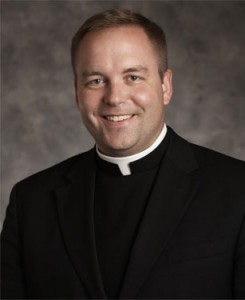 Introduction – Whether it’s to the priesthood, religious life, married life…discerning what our vocation is can be a challenge, but it doesn’t have to be. Fr. Hoesing discusses what discernment is, what the process is like, and what can help guide us along the way.
Introduction – Whether it’s to the priesthood, religious life, married life…discerning what our vocation is can be a challenge, but it doesn’t have to be. Fr. Hoesing discusses what discernment is, what the process is like, and what can help guide us along the way.
Is Jesus Calling? A Spiritual Guide to Discerning Your Vocational Call with Fr. Paul Hoesing - episode 1: Introduction - Whether it's to the priesthood, religious life, married life...discerning what our vocation is can be a challenge, but it doesn't have to be. Fr. Hoesing discusses what discernment is, what the process is like, and what can help guide us along the way.
Podcast: Play in new window | Download (Duration: 27:46 — 25.4MB) | Embed
Subscribe: Apple Podcasts | Spotify | Amazon Music | Android | Pandora | iHeartRadio | JioSaavn | Podchaser | Gaana | Podcast Index | Email | TuneIn | Deezer | Anghami | RSS | More
Based on “Is Jesus Calling You To Be A Catholic Priest: A helpful guide”, published by National Conference of Diocesan Vocation Director.
Fr. Paul Hoesing serves as the Vocation Director for the Archdiocese of Omaha, NE.
Check out “For Your Vocation.org”
IJCY2-Is Jesus Calling You: Discerning Your Vocation with Fr. Paul Hoesing episode 2
Is Jesus Calling? A Spiritual Guide to Discerning Your Vocational Call with Fr. Paul Hoesing – episode 2:  The First Spiritual Lesson: You Must Follow Christ. “Discovering one’s vocation is not a navel-gazing, self-focused, psychological exercise. It’s not about a man figuring something out. It is not about solving a confusing puzzle.”
The First Spiritual Lesson: You Must Follow Christ. “Discovering one’s vocation is not a navel-gazing, self-focused, psychological exercise. It’s not about a man figuring something out. It is not about solving a confusing puzzle.”
Questions: Where have you encountered Christ? Where do you experience his loving presence now for you? Where do you feel consciously blessed and grateful for what God has done for you?
Podcast: Play in new window | Download (Duration: 27:45 — 25.4MB) | Embed
Subscribe: Apple Podcasts | Spotify | Amazon Music | Android | Pandora | iHeartRadio | JioSaavn | Podchaser | Gaana | Podcast Index | Email | TuneIn | Deezer | Anghami | RSS | More
The Second Spiritual Lesson: Learn to desire what God desires for you. “All you need is to desire whatever God may desire for you. Remaining true to this desire opens your heart to receive what God wants for you. Then, God Himself will take care of you.”
Questions: Do you trust that God always wants what is best for you? Where do you begin to become afraid of giving God permission to lead you? When do you begin to try to manipulate God to want what you think will make you happy? When that happens, simply say over and over again inside of yourself to the Father, ‘Father, I give you permission to lead me!’ Or ‘Father, I desire your goodness to me.’ Or, ‘Father, I trust you’”
Based on “Is Jesus Calling You To Be A Catholic Priest: A helpful guide”, published by National Conference of Diocesan Vocation Director.
Fr. Paul Hoesing serves as the Vocation Director for the Archdiocese of Omaha, NE.
Check out “For Your Vocation.org”
IJCY3-Is Jesus Calling You? Discerning Your Vocation with Fr. Paul Hoesing episode 3
Is Jesus Calling? A Spiritual Guide to Discerning Your Vocation with Fr. Paul Hoesing – episode 3:  The Third Spiritual Lesson: Trust God. “When the thought of your vocation comes into your mind and heart, if you keep it to yourself in your mind, dwelling on it over and over trying to figure it out or trying to control it or trying to get rid of it, then you will be choosing not to trust.”
The Third Spiritual Lesson: Trust God. “When the thought of your vocation comes into your mind and heart, if you keep it to yourself in your mind, dwelling on it over and over trying to figure it out or trying to control it or trying to get rid of it, then you will be choosing not to trust.”
Questions: Where are the particular classrooms in the general school of dependence where you are being invited to trust in God? What are the storms in your life that make your mind race causing confusion in you? Jesus wants do to something for you there. Focus him. Bring it to him. Desire his love in it.
Podcast: Play in new window | Download (Duration: 27:32 — 25.2MB) | Embed
Subscribe: Apple Podcasts | Spotify | Amazon Music | Android | Pandora | iHeartRadio | JioSaavn | Podchaser | Gaana | Podcast Index | Email | TuneIn | Deezer | Anghami | RSS | More
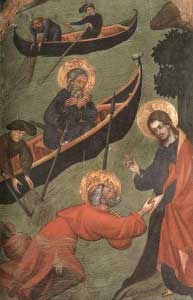 Based on “Is Jesus Calling You To Be A Catholic Priest: A helpful guide”, published by National Conference of Diocesan Vocation Director.
Based on “Is Jesus Calling You To Be A Catholic Priest: A helpful guide”, published by National Conference of Diocesan Vocation Director.
Fr. Paul Hoesing serves as the Vocation Director for the Archdiocese of Omaha, NE.
Check out “For Your Vocation.org”
IJCY4-Is Jesus Calling You with Fr. Paul Hoesing episode 4
Is Jesus Calling? A Spiritual Guide to Discerning Your Vocational Call with Fr. Paul Hoesing – episode 4:  The Fourth Spiritual Lesson: It Takes Time. “The Father simply wants you to trust him enough to take the next step, not the 10th or 20th step. He wants you to focus on going from A to B, not on going from A to Z. When you take that step, Jesus will reveal the next one.”
The Fourth Spiritual Lesson: It Takes Time. “The Father simply wants you to trust him enough to take the next step, not the 10th or 20th step. He wants you to focus on going from A to B, not on going from A to Z. When you take that step, Jesus will reveal the next one.”
Questions: What is the next step God is asking of you? Are you afraid to take it? If you are, ask him into the situation or reality that causes you fear. Are you focusing too far down the road?
Podcast: Play in new window | Download (Duration: 27:15 — 25.0MB) | Embed
Subscribe: Apple Podcasts | Spotify | Amazon Music | Android | Pandora | iHeartRadio | JioSaavn | Podchaser | Gaana | Podcast Index | Email | TuneIn | Deezer | Anghami | RSS | More
The Fifth Spiritual Lesson: Your Peace is Found in Jesus. “Christ’s presence is enjoyable; it gives us peace, stillness, clarity and gratitude. Our job is to desire it.”
Questions: Where do you experience peace, stillness, clarity or gratitude in God? Wherever that is happening in your life, you need to do two things: (1) realize that this is the presence of Christ and ; (2) desire it throughout your day…above all thins. Relish his presence, enjoy his presence, long fro his presence, keep coming back to his presence, adore his presence and express gratitude for his presence.
Based on “Is Jesus Calling You To Be A Catholic Priest: A helpful guide”, published by National Conference of Diocesan Vocation Director.
Fr. Paul Hoesing serves as the Vocation Director for the Archdiocese of Omaha, NE.
Check out “For Your Vocation.org”
IJCY5-Is Jesus Calling You with Fr. Paul Hoesing episode 5
Is Jesus Calling? A Spiritual Guide to Discerning Your Vocational Call with Fr. Paul Hoesing – episode 5:  The Sixth Spiritual Lesson: Your fear is from the spirit against Christ. “God does not reveal himself through fear, pressure or confusion. This where the spirit against Christ reveals himself.”
The Sixth Spiritual Lesson: Your fear is from the spirit against Christ. “God does not reveal himself through fear, pressure or confusion. This where the spirit against Christ reveals himself.”
Questions: What are your ideas and images of god the Father and how do they differ from what Jesus teaches us about the Father? Do you see the Father as someone who pressures you to do things? Where does fear drive your relationship with the Father? Recall your latest experience of peace, stillness, clarity and gratitude in God and believe that that is how the Father draws you?
Podcast: Play in new window | Download (Duration: 28:41 — 26.3MB) | Embed
Subscribe: Apple Podcasts | Spotify | Amazon Music | Android | Pandora | iHeartRadio | JioSaavn | Podchaser | Gaana | Podcast Index | Email | TuneIn | Deezer | Anghami | RSS | More
The Seventh Spiritual Lesson: God’s will is found in your will when you are in Christ. “God’s will, His desire for you, is not out there somwhere! It is found in your own desire when you are in Christ! That is the will of God for you!”
Questions: Does the thought of the priesthood come into your thoughts, feelings and desires when you are experiencing the peaceful presence of God?
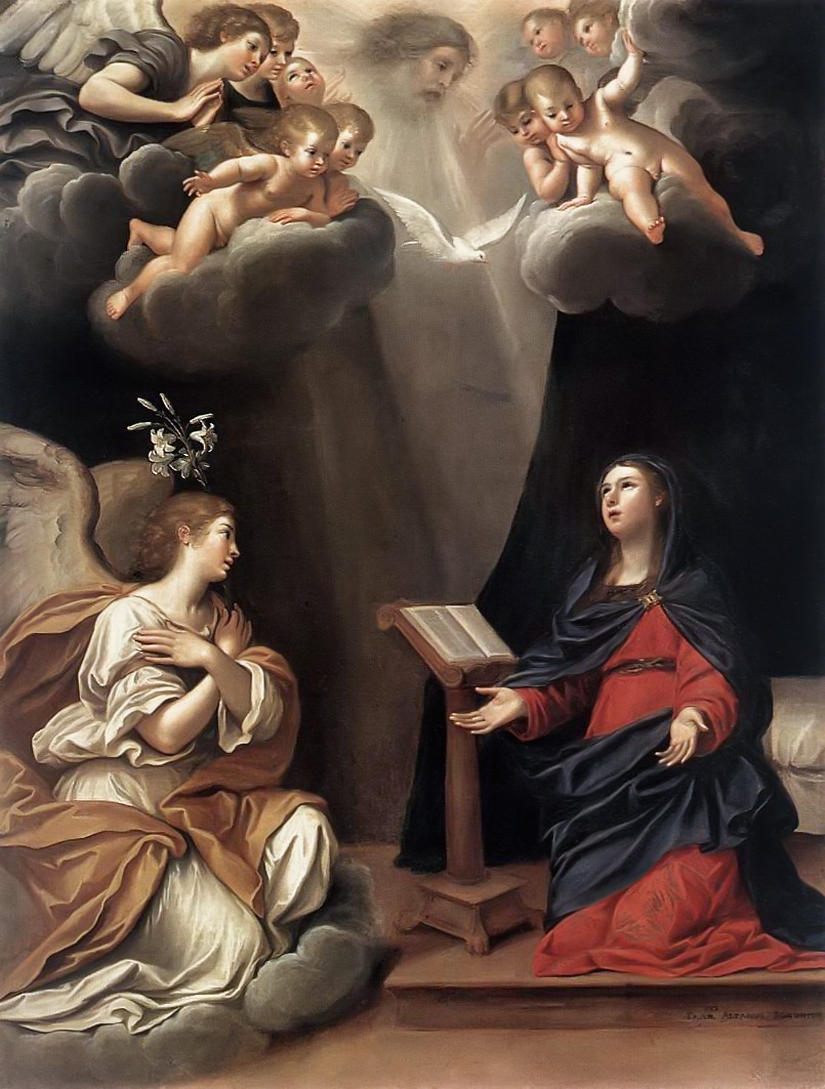 Based on “Is Jesus Calling You To Be A Catholic Priest: A helpful guide”, published by National Conference of Diocesan Vocation Director.
Based on “Is Jesus Calling You To Be A Catholic Priest: A helpful guide”, published by National Conference of Diocesan Vocation Director.
Fr. Paul Hoesing serves as the Vocation Director for the Archdiocese of Omaha, NE.
Check out “For Your Vocation.org“
IP#19 Jeff Cavins – Walking with God : A journey through the bible
He has changed Catholic Scripture Study as we know it…praise God. Not boring, not dry…not a dissection of the Sacred Word of God, which leaves Sacred Scripture cold and lifeless; that doesn’t happen when you enter into the Great Adeventure. Jeff Cavins is a master teacher, storyteller and evangelist. It’s 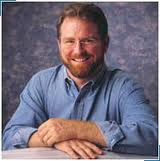 always great to talk with Jeff. This time I spoke with him about his new work with Dr. Tim Gray “Walking with God: A journey through the bible”. All of you that have done any of the “Great Adventure” tracks will love this book…it’s meant to take you deeper. Any of you that haven’t experienced Jeff’s work, this is a great way to start! Begin you’re journey today…from the head to the heart, from the heart of the Church to the heart of the Word…
always great to talk with Jeff. This time I spoke with him about his new work with Dr. Tim Gray “Walking with God: A journey through the bible”. All of you that have done any of the “Great Adventure” tracks will love this book…it’s meant to take you deeper. Any of you that haven’t experienced Jeff’s work, this is a great way to start! Begin you’re journey today…from the head to the heart, from the heart of the Church to the heart of the Word…
Available through Ascension Press
Podcast: Play in new window | Download (Duration: 28:04 — 32.1MB) | Embed
Subscribe: Apple Podcasts | Spotify | Amazon Music | Android | Pandora | iHeartRadio | JioSaavn | Podchaser | Gaana | Podcast Index | Email | TuneIn | Deezer | Anghami | RSS | More
IP#55 Matt Baglio – The Rite on Inside the Pages
“The Rite: The Making of a Modern Day Exorcist” is a fascinating exploration of the rite of exorcism from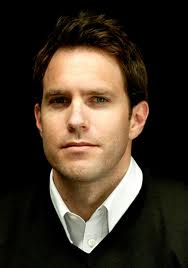 journalistic point of view. Following the training of a priest from California, Fr. Gary, in Rome, Matt Baglio chronicles his activities, as well as many aspects of the darker sides of the spiritual world. In a very real way, Matt demystifies exorcism and shows us what it really entails and the true gift it is to the Church. “The Rite” is now being made into a major motion
journalistic point of view. Following the training of a priest from California, Fr. Gary, in Rome, Matt Baglio chronicles his activities, as well as many aspects of the darker sides of the spiritual world. In a very real way, Matt demystifies exorcism and shows us what it really entails and the true gift it is to the Church. “The Rite” is now being made into a major motion 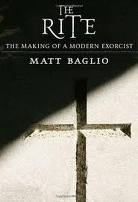 picture starring Anthony Hopkins.
picture starring Anthony Hopkins.
Podcast: Play in new window | Download (Duration: 28:00 — 25.6MB) | Embed
Subscribe: Apple Podcasts | Spotify | Amazon Music | Android | Pandora | iHeartRadio | JioSaavn | Podchaser | Gaana | Podcast Index | Email | TuneIn | Deezer | Anghami | RSS | More
USCCA28 – Life in Jesus Part 3 – U. S. Catholic Catechism for Adults w/ Arch. George Lucas
Podcast: Play in new window | Download (Duration: 27:42 — 25.4MB) | Embed
Subscribe: Apple Podcasts | Spotify | Amazon Music | Android | Pandora | iHeartRadio | JioSaavn | Podchaser | Gaana | Podcast Index | Email | TuneIn | Deezer | Anghami | RSS | More

USCCA28 Chapter 24 Life In Jesus part 3
Conscience represents both the more general ability we have as human beings to know what is good and right and the concrete judgments we make in particular situations concerning what we should do or about what we have already done. Moral choices confront us with the decision to follow or depart from reason and the divine law. A good conscience makes judgments that conform to reason and the good that is willed by the Wisdom of God. A good conscience requires lifelong formation. Each baptized follower of Christ is obliged to form his or her conscience according to objective moral standards. The Word of God is a principal tool in the formation of conscience when it is assimilated by study, prayer, and practice. The prudent advice and good example of others support and enlighten our conscience. The authoritative teaching of the Church is an essential element in our conscience formation. Finally, the gifts of the Holy Spirit, combined with regular examination of our conscience, will help us develop a morally sensitive conscience.
The Most Reverend George J. Lucas leads the Archdiocese of Omaha.
For other episodes in the visit our Archbishop George Lucas page
This programs is based on:
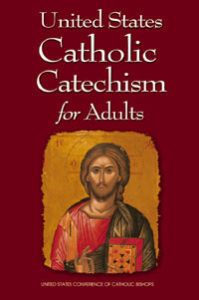 More information can be found here.
More information can be found here.
We wish to thank the USCCB for the permissions granted for use of relevant material used in this series.
Also we wish to thank Matt Wilkom for his vocal talents in this episode.
[ezcc]
IJCY1 – Hearing God’s Voice – Is Jesus Calling You with Fr. Paul Hoesing – Discerning Hearts Podcast
Podcast: Play in new window | Download (Duration: 27:58 — 19.3MB) | Embed
Subscribe: Apple Podcasts | Spotify | Amazon Music | Android | Pandora | iHeartRadio | JioSaavn | Podchaser | Gaana | Podcast Index | Email | TuneIn | Deezer | Anghami | RSS | More

Hearing God’s Voice – Is Jesus Calling You with Fr. Paul Hoesing
Fr. Paul Hoesing and Kris McGregor discuss the process of discernment, particularly in the context of vocational calling, with a focus on priesthood but applicable to all vocations, using the booklet “Is Jesus Calling You to Be a Catholic Priest?” authored by Father Tom Richter.
Discernment involves more than decision-making; it’s about listening attentively to God’s voice amidst the noise of the world, the devil, and our own egos. Encountering Christ personally, especially through prayer and the sacraments, is the foundation of discernment.
Fr. Hoesing shares anecdotes and insights, such as the distinction between the voices of God and those of the world, and the significance of feelings of blessing and gratitude as indicators of God’s presence.

Discerning Hearts Reflection Questions:
- Encounter with Christ: Where have you encountered Christ in your life, and what impact has that encounter had on you?
- Gratitude and Blessings: Can you identify specific instances where you’ve felt blessed and grateful for God’s actions in your life?
- Discerning God’s Voice: How do you distinguish between the voice of God and other competing voices, such as those of the world, the devil, and your own ego?
- Personal Encounter with Christ: In what ways do you currently cultivate a personal encounter with Christ through prayer and the sacraments?
- Embracing God’s Call: How do you respond to the call of God in your life, whether it be towards priesthood, religious life, marriage, or another vocation?
- Seeking Guidance and Blessing: How can you seek guidance from God as you navigate your discernment journey
Based on “Is Jesus Calling You To Be A Catholic Priest: A helpful guide”, published by National Conference of Diocesan Vocation Director.
Fr. Paul Hoesing serves at Kenrick-Glennon Seminary as President Rector
WOM5 – The Penitential Rite – The Way of Mystery with Deacon James Keating – Discerning Hearts Podcast
Podcast: Play in new window | Download (Duration: 26:12 — 18.0MB) | Embed
Subscribe: Apple Podcasts | Spotify | Amazon Music | Android | Pandora | iHeartRadio | JioSaavn | Podchaser | Gaana | Podcast Index | Email | TuneIn | Deezer | Anghami | RSS | More

The Penitential Rite – The Way of Mystery with Deacon James Keating
Deacon James Keating and Kris McGregor explore how the Eucharist is intimately tied to reconciliation and moral renewal. The Mass is truly the celebration of those who have been reconciled with God. Grave sin blocks intimacy with Christ, and so the sacrament of reconciliation is essential before receiving the Eucharist. He acknowledges past tendencies to downplay the need for confession to avoid scrupulosity but cautions against neglecting reconciliation, since true love for Christ motivates us to seek restored communion. The penitential rite at the beginning of Mass then becomes an act of deep honesty, where we name venial sins, accept responsibility without excuses, and open ourselves to the mercy of God, so that we can receive the Word and Eucharist with greater attentiveness and freedom.
There is a spiritual and psychological importance of naming sins; using the example of a marriage: when harm is done, reconciliation restores intimacy and peace. Avoiding the pain of self-examination leads to inner turmoil, but bringing sins into the light always encounters mercy, never condemnation. This process echoes Christ’s fidelity on the cross—meeting evil with love—and allows grace to heal what blocks union with God. Over time, the practice of reconciliation becomes less burdensome and more joyful, much like spouses who quickly seek forgiveness out of love. The Mass, especially through the penitential rite and the Eucharist, thus becomes a place of ongoing conversion, drawing us more deeply into the mystery of salvation.
Discerning Hearts Reflection Questions
- How do I approach the sacrament of reconciliation as preparation for receiving the Eucharist?
- In what ways might I avoid or resist the pain of self-examination in my spiritual life?
- Do I take responsibility for my sins without excuses, or do I tend to rationalize them?
- How can I enter more fully into the penitential rite at Mass instead of rushing through it?
- What habits of venial sin most often block my openness to God’s grace?
- How does the image of marriage help me understand reconciliation with God?
- Do I see the naming of my sins as a gift that leads me closer to Christ?
- How do I experience the mercy of God in contrast to feelings of self-condemnation?
- In what ways can I slow down during the liturgy to be more attentive to God’s presence?
- How does Christ’s meeting of evil with love on the cross shape the way I face my own struggles with sin?
Deacon James Keating, Ph.D., is a professor of Spiritual Theology and serves as a spiritual director at Kenrick Glennon Seminary in St. Louis, MO.
WOM7 – The Liturgy of the Word, pt. 1 – The Way of Mystery with Deacon James Keating – Discerning Hearts Podcast
Podcast: Play in new window | Download (Duration: 26:25 — 18.2MB) | Embed
Subscribe: Apple Podcasts | Spotify | Amazon Music | Android | Pandora | iHeartRadio | JioSaavn | Podchaser | Gaana | Podcast Index | Email | TuneIn | Deezer | Anghami | RSS | More

The Liturgy of the Word, Part 1 – The Way of Mystery with Deacon James Keating
Deacon James Keating and Kris McGregor explore how the Liturgy of the Word shapes conscience and draws the faithful into a deeper encounter with Christ. Conscience is not a mystical faculty but the human mind oriented toward discerning right and wrong, always influenced by what and whom we love. Because the mind is constantly being formed by outside voices, it is crucial to attend to the Word of God proclaimed at Mass, where Christ himself enters through language. Unlike mere information or historical detail, Scripture proclaimed in the liturgy is meant to bring transformation—similar to Christ’s dialogue with the Samaritan woman at the well. By allowing the Word to “take up residence” within, a person gradually shifts from deriving identity from worldly approval to resting in their Catholic identity, formed within the community of the Church.
The liturgy is not simply storytelling or nostalgia but a living prayer in which Christ becomes present and personally addresses each heart. To benefit fully, preparation is vital—reading the Scriptures beforehand ensures they penetrate deeply during Mass rather than fading like an overheard announcement. Within the liturgy, there is both a general message for the whole Church and a unique “particularization” by the Holy Spirit for each person’s circumstances, offering moments of genuine conversion. The Liturgy of the Word, then, is not passive listening but an encounter that requires hospitality toward God’s presence, openness to interior change, and the courage to allow conscience to be guided from within by the Word received through the Church.
Discerning Hearts Reflection Questions
- How do I allow the Word of God at Mass to shape my conscience rather than letting worldly voices guide me?
- Do I prepare for the Liturgy of the Word by reading and praying with the Scriptures during the week?
- When hearing Scripture proclaimed, am I open to encounter Christ personally rather than receiving only information?
- What loves or attachments influence the way I discern right and wrong in my daily life?
- Do I let my Catholic identity rest in Christ and his Church, or do I still seek validation from the world’s approval?
- How willing am I to welcome the particular ways the Holy Spirit convicts and challenges me during the readings?
- In what areas of my life am I resisting the Word because I fear the change it might require?
- Do I treat the Mass, especially the Liturgy of the Word, as true prayer where Christ comes close to me now?
Deacon James Keating, Ph.D., is a professor of Spiritual Theology and serves as a spiritual director at Kenrick Glennon Seminary in St. Louis, MO.
WOM8 – The Liturgy of the Word, pt. 2 – The Way of Mystery with Deacon James Keating – Discerning Hearts Podcast
Podcast: Play in new window | Download (Duration: 25:34 — 17.6MB) | Embed
Subscribe: Apple Podcasts | Spotify | Amazon Music | Android | Pandora | iHeartRadio | JioSaavn | Podchaser | Gaana | Podcast Index | Email | TuneIn | Deezer | Anghami | RSS | More

The Liturgy of the Word, Part 2 – The Way of Mystery with Deacon James Keating
Deacon James Keating and Kris McGregor explore how the Liturgy of the Word forms hearts for mission. Proclamation should be prayerful, sober, and transparent so the assembly meets Christ rather than the reader’s performance; “let the Word do the work.” Receiving Scripture at Mass shapes conscience for public witness—at home, work, and civic life—supported by friendships in the Church that foster courage. Moving attention from a book-as-object to the living power of God’s Word active in the Church, Catholics should carry that Word into culture with humility and clarity.
They also consider the deacon’s vocation—revived at Vatican II—as a bridge between altar and everyday life, helping extend the Liturgy of the Word through retreats, catechesis, and social teaching so the laity can transform culture. The Creed is the community’s “we believe,” sealing the revelation just heard, and the Prayer of the Faithful awakens eyes to the needs of the poor, the sick, and all wounded by sin. From hearing to living, the pattern is clear: contemplation at Mass blossoms into service and witness in the world.
Discerning Hearts Reflection Questions
- In what ways has my understanding of the Mass grown or matured over time, like a marriage deepening in love?
- Do I approach the Eucharist as a precious gift, or do I sometimes take its accessibility for granted?
- How am I being called to prepare more intentionally before receiving the Eucharist?
- What does meditating on the Paschal Mystery reveal to me about the purpose of my life?
- Where in my life do I still struggle to trust God’s providence, and how might the sacraments heal this wound?
- How do I respond to God’s desire for communion with me in my daily choices?
- In what ways does Christ’s invitation to friendship change the way I live my discipleship?
- How do I experience the drama of redemption—continuing to surrender to grace—in my own spiritual journey?
- What practical step can I take this week to cherish the Eucharist more deeply?
Deacon James Keating, Ph.D., is a professor of Spiritual Theology and serves as a spiritual director at Kenrick Glennon Seminary in St. Louis, MO.
WOM9 – The Liturgy of the Eucharist, pt. 1 – The Way of Mystery with Deacon James Keating – Discerning Hearts Podcast
Podcast: Play in new window | Download (Duration: 30:09 — 20.7MB) | Embed
Subscribe: Apple Podcasts | Spotify | Amazon Music | Android | Pandora | iHeartRadio | JioSaavn | Podchaser | Gaana | Podcast Index | Email | TuneIn | Deezer | Anghami | RSS | More

The Liturgy of the Eucharist, Part 1 – The Way of Mystery with Deacon James Keating
Deacon James Keating explores how the Eucharist shapes moral life by transforming our conscience through divine charity. He explains that the Eucharist is the source of goodness because it is the wellspring of God’s love. By placing ourselves before this mystery, we are drawn into holiness and made capable of authentic charity. The offertory is not merely a financial gesture but a response to being filled with the Word of God—an act that symbolizes giving of self. The mingling of water and wine is a sign of our union with Christ’s divinity through humility and service, reminding us that true communion with Christ sends us toward those in need. The priest’s quiet prayer for purification before consecration reveals a deep awareness of human unworthiness and the immense grace of God’s invitation to holiness.
The shift in the Mass from prayers directed to Christ to those offered with Christ to the Father mirrors Jesus’ self-offering on the Cross and our participation in His obedience. He also reflects on the priest’s vocation as a sacramental presence of Christ—the bridge between God and His people. The priest’s role is not managerial but paternal, called to spiritual fatherhood that demands holiness, humility, and courage to teach truth even when unpopular. We shouldn’t reduce priesthood to leadership models devoid of spiritual depth: the priest must feed his people with truth rather than cultural opinions. The faithful, in turn, are called to pray fervently for their priests, that they may live their vocation with integrity and draw their communities into deeper communion with Christ.
Discerning Hearts Reflection Questions
- How does recognizing the Eucharist as the “wellspring of divine charity” reshape your understanding of moral goodness?
- In what ways can you make your offertory—both spiritual and material—a more authentic act of self-giving?
- What does the mingling of water and wine at Mass teach you about humility and participation in Christ’s divinity?
- How do you discern whether an encounter with God has truly moved you toward serving the poor and those in need?
- When you witness the priest’s hand-washing ritual, how might you join interiorly in his prayer for purification?
- What does the shift in prayer “through Christ to the Father” invite you to consider about obedience and dependence on God?
- How can you support your parish priest in living out his vocation as a spiritual father rather than a mere leader or administrator?
- What does Deacon Keating’s reflection reveal about your own attitude toward authority and obedience in the Church?
- How might you respond when the truth of Church teaching challenges your comfort or cultural assumptions?
- In what concrete ways can you pray for priests and help strengthen their courage to proclaim the Gospel faithfully?
Deacon James Keating, Ph.D., is a professor of Spiritual Theology and serves as a spiritual director at Kenrick Glennon Seminary in St. Louis, MO.
WOM11 – The Liturgy of the Eucharist, pt. 3 – The Way of Mystery with Deacon James Keating – Discerning Hearts Podcast
Podcast: Play in new window | Download (Duration: 28:24 — 19.5MB) | Embed
Subscribe: Apple Podcasts | Spotify | Amazon Music | Android | Pandora | iHeartRadio | JioSaavn | Podchaser | Gaana | Podcast Index | Email | TuneIn | Deezer | Anghami | RSS | More

The Liturgy of the Eucharist, Part 3 – The Way of Mystery with Deacon James Keating
Deacon James Keating reflects on the deep meaning of the Our Father and the moments that follow it in the Eucharistic liturgy. Christ not only left His Body and Blood as an enduring gift but also gave His Church the perfect words with which to approach the Father. The Our Father reveals the intimacy between the Son and the Father, inviting the faithful to share in that divine relationship. Heaven is this very communion of love among the Father, Son, and Holy Spirit—a reality that the Mass allows us to enter even now. When we pray “Thy will be done,” we participate in Christ’s obedience and goodness, asking to be drawn into the Father’s will. The prayer for “daily bread” points both to the Eucharist and to our need for divine nourishment that sustains virtue and forgiveness. Before receiving this bread, we are called to forgive others, renounce attachment to sin, and trust God for deliverance from evil. The Our Father thus becomes the very language of reconciliation—the way heaven meets earth through Christ.
The Sign of Peace and the Lamb of God are moments that prepare the heart for communion. Peace means more than the absence of conflict—it is communion itself, the fruit of reconciliation through Christ. The repeated invocation “Lamb of God, who takes away the sins of the world” brings awareness of our dependence on divine mercy and the innocent power of Christ’s sacrifice. The priest’s private prayers before communion highlight fidelity to truth, interior healing, and the grace that restores what sin has fractured. We should not treat the Eucharist as a personal right or mere symbol. Receiving Christ’s true Body and Blood requires faith, repentance, and integrity of conscience; to receive unworthily is to lie before God. The Eucharist is the mystery of divine love offered to the reconciled—a gift we could never deserve, yet one that heals and integrates us into the very life of the Trinity.
Discerning Hearts Reflection Questions
- How does praying the Our Father during Mass draw you into the intimate relationship between Jesus and the Father?
- In what ways do you experience the Eucharist as the meeting place of heaven and earth?
- What does “Thy will be done” mean for your daily moral choices and spiritual surrender?
- How can receiving your “daily bread” inspire greater trust in God’s goodness and providence?
- Before receiving Communion, whom might you still need to forgive or seek forgiveness from?
- How does the Sign of Peace call you to see others through God’s merciful eyes rather than their faults?
- When you hear “Lamb of God, who takes away the sins of the world,” how aware are you of your need for mercy?
- What does the priest’s silent prayer before Communion teach you about humility and fidelity to truth?
- How has receiving the Eucharist brought healing or integration to areas of disunity in your life?
- Do you approach Holy Communion as an undeserved gift of love rather than a personal entitlement?
Deacon James Keating, Ph.D., is a professor of Spiritual Theology and serves as a spiritual director at Kenrick Glennon Seminary in St. Louis, MO.
WOM12 – The Communion Rite – The Way of Mystery with Deacon James Keating – Discerning Hearts Podcast
Podcast: Play in new window | Download (Duration: 27:17 — 18.8MB) | Embed
Subscribe: Apple Podcasts | Spotify | Amazon Music | Android | Pandora | iHeartRadio | JioSaavn | Podchaser | Gaana | Podcast Index | Email | TuneIn | Deezer | Anghami | RSS | More

The Communion Rite – The Way of Mystery with Deacon James Keating
Deacon James Keating reflects on the sacred reality of receiving Holy Communion as an act of faith and new life. Rising from the pew mirrors Christ’s call to Lazarus — a movement from death to life. Communion is not a casual act but an encounter with the living Christ who dwells within us to bring us through death into eternal life. Deacon Keating invites us to approach the Eucharist attentively, using reverence, focus, and prayer to center the heart on the mystery being received. Even distractions during the procession can become moments of intercession. Saying “Amen” boldly affirms one’s desire for salvation, while gestures like bowing unite body and soul in readiness for divine encounter. After receiving the Eucharist, silence allows the soul to interiorize grace — a sacred “epiclesis” within the communicant, like Mary’s silent fiat at the Annunciation.
This encounter leads to transformation and mission. The silence after Communion is where conversion deepens, forming the faithful to bring Christ into the world. The Mass is not complete until we allow the Lord to change us, sending us forth as witnesses in daily life. Fear often stifles this transformation — fear of rejection, ignorance, or standing alone in truth — yet authentic community and deeper knowledge of Christ dispel such fear. Participation in daily Mass, Eucharistic adoration, and acts of charity sustain this conversion. Each small offering or self-denial extends the mystery of the Mass into everyday life. The Eucharist thus unites worship and mission, healing the divide between faith and ordinary living so that the lay vocation can renew culture through Christ’s abiding presence.
Discerning Hearts Reflection Questions
- When I rise to receive Holy Communion, do I truly recognize it as a movement from death to life in Christ?
- How mindful am I of Christ’s presence as I process toward the altar, and how can I gently refocus when distractions arise?
- Do I proclaim my “Amen” at Communion with conviction, aware that I am affirming my desire for salvation?
- How does my bodily reverence—such as bowing—reflect my inner readiness to receive the Lord?
- In what ways can I allow silence after Communion to deepen my encounter with Christ rather than rush through it?
- Do I permit the Eucharist to transform me into a person who brings Christ’s presence into the world?
- What fears hold me back from witnessing to my faith, and how can I bring those fears to the Lord in the Mass?
- How do I support others in my community who strive to live and speak the truth of the Gospel?
- Am I nurturing my relationship with Christ beyond Sunday through daily Mass, adoration, or personal prayer?
- How can I carry the grace of the Eucharist into my daily life by acts of charity, sacrifice, and love?
Deacon James Keating, Ph.D., is a professor of Spiritual Theology and serves as a spiritual director at Kenrick Glennon Seminary in St. Louis, MO.
WOM13 – The Purgative and Illuminative Way – The Way of Mystery with Deacon James Keating – Discerning Hearts
Podcast: Play in new window | Download (Duration: 30:14 — 20.8MB) | Embed
Subscribe: Apple Podcasts | Spotify | Amazon Music | Android | Pandora | iHeartRadio | JioSaavn | Podchaser | Gaana | Podcast Index | Email | TuneIn | Deezer | Anghami | RSS | More

The Purgative and Illuminative Way – The Way of Mystery with Deacon James Keating
Deacon James Keating explains that moral life without a spiritual foundation quickly collapses into mere willpower and rule-keeping. True virtue begins when Christ’s own life and breath animate the soul so that goodness becomes joyful rather than forced. Drawing on the story of the rich young man, it contrasts external obedience with the interior transformation that comes from detachment and union with Christ. It outlines the classic stages of spiritual growth—purgation, illumination, and union—showing how conversion involves cooperating with grace to turn from sin, endure the pain of detachment, and gradually discover the delight of living virtuously.
In the illuminative stage, the moral teachings of the Church are seen not as burdens but as divine gifts that reveal humanity’s true fulfillment. We should not separate Jesus from the Church’s authority, as it’s a deception that isolates Christians and leaves them prey to self-deception and cultural ideologies. Moral relativism is a modern illusion that truth cannot be known, but the Catholic vision holds both mind and heart capable of grasping objective truth through Christ.
Discerning Hearts Reflection Questions
- How do I personally experience the presence of Christ during the Mass and in receiving the Eucharist?
- In what ways can I slow down and truly “savor” the mystery of the Eucharist as the saints did?
- How might I deepen my faith in the real presence of Jesus through prayer and meditation on Scripture?
- Do I recognize that at every Mass, I am united not only with Christ but also with all of heaven and my loved ones who have gone before me?
- How can the example and writings of the saints inspire me to approach the Eucharist with greater love and reverence?
- What steps can I take to participate in Mass more frequently or spend more time in Eucharistic adoration?
- How does understanding the Eucharist as a “sacrament of love” call me to greater self-giving in my daily relationships?
- What does it mean for me to rest on the heart of Christ as St. John did at the Last Supper?
- How do the teachings of the Church Fathers strengthen my understanding and devotion to the Eucharist?
- In what ways is the Mass a foretaste of heaven that prepares my soul for eternal communion with God?
Deacon James Keating, Ph.D., is a professor of Spiritual Theology and serves as a spiritual director at Kenrick Glennon Seminary in St. Louis, MO.
WOM14 – Transformation – The Way of Mystery with Deacon James Keating – Discerning Hearts Podcast
Podcast: Play in new window | Download (Duration: 32:28 — 22.3MB) | Embed
Subscribe: Apple Podcasts | Spotify | Amazon Music | Android | Pandora | iHeartRadio | JioSaavn | Podchaser | Gaana | Podcast Index | Email | TuneIn | Deezer | Anghami | RSS | More

Transformation – The Way of Mystery with Deacon James Keating
Deacon Keating and Kris McGregor discuss how scandals within the Church, particularly clergy abuse, have damaged trust but do not negate the truth that Christ continues to teach through the Church’s magisterium. Deacon Keating distinguishes between the unchanging fidelity of Christ’s promise to guide the Church in matters of doctrine and the personal failures of individual bishops and priests. Some people use these failures as a pretext to disregard Church teaching and remain entrenched in their own patterns of sin. It frames this dynamic as a moment when confusion and resentment can open the door to deeper spiritual distortion, leading people to disconnect from the very spiritual authority meant to help them heal.
The Eucharist is the privileged place where Christ reshapes the mind and heart. Mass—especially the silence after receiving Communion—becomes a space to bring doubts, disagreements, and personal wounds before Christ, allowing Him to purify motivations and lead one into clearer moral understanding. Even those in grave sin, who cannot receive sacramental Communion, still receive graces simply by remaining present at Mass, praying honestly, and remaining within the community rather than isolating themselves. Christ always offers Himself, always calls people toward conversion, and that authentic love sometimes includes hearing difficult truths about one’s life.
Discerning Hearts Reflection Questions
- How do I respond interiorly when I witness failures in Church leadership, and do those reactions draw me closer to Christ or farther from Him?
- In what ways might I use the sins of others—especially clergy—as a shield to avoid confronting my own need for conversion?
- Do I bring my doubts or disagreements with Church teaching honestly before Christ in prayer, especially after receiving or attending the Eucharist?
- What self-interests, fears, or wounds might influence my resistance to particular moral teachings?
- How consistently do I remain within the worshiping community even when I feel unworthy, embarrassed, or spiritually conflicted?
- When I refrain from Communion because of grave sin, do I still approach Mass as a place where Christ seeks to heal and guide me?
- Do I listen attentively to preaching—especially difficult preaching—as a possible act of Christ’s love for my soul?
- How aware am I of the real impact my freely chosen actions have on my relationship with Jesus and others?
- What areas of my life need deeper repentance before I can authentically celebrate Communion with Christ?
- How might I allow Christ to purify my motives so that my desire for truth becomes stronger than my attachment to comfort or personal preference?
Deacon James Keating, Ph.D., is a professor of Spiritual Theology and serves as a spiritual director at Kenrick Glennon Seminary in St. Louis, MO.
WOM15 – The Unitive Way – The Way of Mystery with Deacon James Keating – Discerning Hearts Podcast
Podcast: Play in new window | Download (Duration: 31:09 — 21.4MB) | Embed
Subscribe: Apple Podcasts | Spotify | Amazon Music | Android | Pandora | iHeartRadio | JioSaavn | Podchaser | Gaana | Podcast Index | Email | TuneIn | Deezer | Anghami | RSS | More

The Unitive Way – The Way of Mystery with Deacon James Keating
Deacon Keating explains how spiritual growth develops through three stages. Catholic moral teaching is not an unreachable ideal. Drawing on Pope John Paul II’s Veritatis Splendor, he says real transformation is possible because the power of Christ’s resurrection works within us. The purgative stage involves turning away from attachment to sin, often a difficult shift. The illuminative stage brings a growing attraction to virtue and inner peace. Keating uses Thomas Merton’s experience to show how grace reaches us in ordinary life—on a morning commute or after attending Mass.
The unitive stage goes further: one begins not only to love virtue but to love Christ Himself, the source of all virtue. This is like tasting heaven on earth and reflects Scripture’s nuptial imagery—God desires a relationship of love with His people. The sacramental life of the Church nourishes this union. Keating invites listeners to become attentive to God’s quiet arrivals in everyday moments: a sudden clarity, peace, or prompting of conscience. When these come, remain in that presence as long as it naturally lasts, letting grace deepen love for God and uncover anything that blocks receiving Him more fully.
Discerning Hearts Reflection Questions
- In what areas of my life do I still cling to sin, and how might I open these places to Christ’s healing power?
- When have I experienced a new affection for virtue, and how did I sense grace at work in that moment?
- Do I live as though Jesus is truly alive within me, influencing my choices and desires?
- How does the sacramental life—especially the Eucharist—deepen my relationship with Christ rather than simply improve my behavior?
- Where in ordinary life might God be quietly visiting me, and how can I become more attentive to His subtle presence?
- What attitudes or habits might be blocking me from receiving His love more fully, and how can I bring them to confession?
- How do I understand the unitive way as a relationship of love rather than an achievement of spiritual “success”?
- When I sense God’s presence, do I linger with Him as long as prudence allows, or do I rush back to distraction?
Deacon James Keating, Ph.D., is a professor of Spiritual Theology and serves as a spiritual director at Kenrick Glennon Seminary in St. Louis, MO.
WOM16 – The Internal World and External Presence of God – The Way of Mystery with Deacon James Keating – Discerning Hearts
Podcast: Play in new window | Download (Duration: 33:25 — 23.0MB) | Embed
Subscribe: Apple Podcasts | Spotify | Amazon Music | Android | Pandora | iHeartRadio | JioSaavn | Podchaser | Gaana | Podcast Index | Email | TuneIn | Deezer | Anghami | RSS | More

The Internal World and External Presence of God – The Way of Mystery with Deacon James Keating
Deacon James Keating explains that experiencing God’s love begins with grace. God reaches the heart through intellect and affection, but many miss these moments because they are distracted or constantly driven by ego. Silence allows us to perceive God’s presence—whether through beauty, acts of kindness, or gratitude. Asking God directly for the gift of knowing His love, being attentive to the movements of the heart, and recognizing that this union often begins in moments of consoling prayer. Such prayer is not confined to formal worship; it can arise unexpectedly, even outside the church. The Eucharist prepares us to make a space for God rather than forcing His action. Faith—not sensation—is at the core of sacramental life, and remaining faithful in the absence of feelings still brings genuine closeness to God.
Authentic spiritual union deepens when conscience is followed, even when it causes suffering. Acting on truth at personal cost draws us into Christ’s own obedience and sacrifice. This suffering is not a sign of abandonment but a participation in the Paschal mystery, where union with Christ matters more than comfort. Saints such as St. Bernadette, St. Edith Stein, and St. Maximilian Kolbe willingly faced hardship because intimacy with Christ outweighed fear. Daily moral decisions—large or small—are sustained not by human strength but by Christ’s presence received through prayer and the Eucharist. In these ways—consoling prayer, sacramental life, fidelity to conscience, and union in suffering—the soul begins to taste heaven on earth.
Discerning Hearts Reflection Questions
- When was the last time I slowed down to notice God reaching out to me through beauty, kindness, or gratitude?
- How do I make space for silence in my daily life so that God can communicate His presence to my heart?
- Do I pray not only to believe in God’s love, but also to truly know and experience it?
- How do I approach the Eucharist—as a demand for spiritual sensation or as an act of faith and readiness?
- Have I noticed moments of consolation in prayer outside formal worship, and how did I respond to them?
- When my conscience reveals a difficult truth, do I trust Christ enough to follow it even when suffering is involved?
- In what areas of life do I cling to comfort or ego instead of surrendering to God’s invitation to deeper union?
- How does my experience of sacramental life shape my willingness to put others first in small, everyday sacrifices?
- What fears keep me from seeking Christ’s will, and how can I bring those fears into prayer?
- Where have I seen God sustain me through a painful decision, and how did that deepen my relationship with Him?
Deacon James Keating, Ph.D., is a professor of Spiritual Theology and serves as a spiritual director at Kenrick Glennon Seminary in St. Louis, MO.
WOM17 – Mystical Experience and Consoling Prayer – The Way of Mystery with Deacon James Keating – Discerning Hearts Podcast
Podcast: Play in new window | Download (Duration: 28:35 — 19.7MB) | Embed
Subscribe: Apple Podcasts | Spotify | Amazon Music | Android | Pandora | iHeartRadio | JioSaavn | Podchaser | Gaana | Podcast Index | Email | TuneIn | Deezer | Anghami | RSS | More

Mystical Experience and Consoling Prayer – The Way of Mystery with Deacon James Keating
Deacon James Keating explains how God draws the heart toward himself through ordinary prayer and through growth out of serious sin. He describes “consoling prayer,” the simple joy and peace one begins to notice when turning to God—often after the hard early work of conversion, repentance, and regular prayer. Over time, prayer becomes something we desire rather than an obligation, and affection for God gently replaces past attachments to sin. God can unexpectedly visit us during ordinary moments of the day, stirring love for him outside of set prayer times. These moments are like spontaneous interior invitations that deepen closeness with Christ.
He also speaks of union through the sacraments—especially the Eucharist—where Christ is truly present even when affection is absent. Acting according to a well-formed conscience is itself another real union with Christ, because choosing the good unites us to the One who is Truth, even when doing so brings difficulty or misunderstanding in the culture. Ongoing purification, participation in parish life, and concrete practices such as confession, spiritual direction, works of mercy, and friendships rooted in Christ gradually reorder the heart. Conversion is a continual turning toward Christ in the Eucharist, letting him heal attachments to sin and make us new.
Discerning Hearts Reflection Questions
- When have I experienced prayer as something I genuinely look forward to rather than a duty?
- In what areas of my life do I still seek comfort from old habits instead of turning to Christ?
- How open am I to unexpected moments of prayer during my ordinary day?
- What keeps me from approaching the Eucharist with a heart ready for inner change?
- When choosing the good becomes costly, how do I remain faithful to conscience?
- Which practices in my parish are truly helping my heart turn toward Christ?
- What specific attachment to sin do I need to surrender to the Lord right now?
Deacon James Keating, Ph.D., is a professor of Spiritual Theology and serves as a spiritual director at Kenrick Glennon Seminary in St. Louis, MO.
WOM18 – The Gift of Grace – The Way of Mystery with Deacon James Keating – Discerning Hearts Podcast
Podcast: Play in new window | Download (Duration: 33:28 — 23.0MB) | Embed
Subscribe: Apple Podcasts | Spotify | Amazon Music | Android | Pandora | iHeartRadio | JioSaavn | Podchaser | Gaana | Podcast Index | Email | TuneIn | Deezer | Anghami | RSS | More

The Gift of Grace – The Way of Mystery with Deacon James Keating
Deacon James Keating describes the spiritual journey from attachment to sin into a life shaped by Christ’s light. This shift usually begins through pain or restlessness that awakens a desire for something deeper. As a person moves away from sin and leans into virtue, the presence of Christ becomes clearer, forming the mind and heart through prayer, scripture, worship, and especially the Eucharist. Over time, a person stops acting in isolation and instead makes choices with Christ dwelling within, seeking His guidance in every moral question. This inner communion brings freedom, joy, and clarity, not constraint, because the Christian life becomes a relationship of deepening love rather than instant transformation.
Worship shapes moral life because it immerses the soul in Christ’s life, death, and resurrection. Practical discernment includes immediately handing temptations over to Christ before they take root in the imagination and lead the will astray. All ethical questions are to be placed within the mystery of Christ rather than secular ideologies. A well-formed conscience draws from scripture, the Eucharist, and the Church’s teaching authority, which safeguards doctrine and prevents confusion born from private theories or theological trends. True renewal in the Church arises where Catholics rediscover authentic teaching, which challenges one toward holiness and aligns life with Christ rather than cultural pressures.
Discerning Hearts Reflection Questions
- How has Christ begun to bring light into areas of your life where you once felt restless or dissatisfied?
- In what ways does your participation in the Eucharist shape the choices you make throughout the week?
- Where do you still rely on your own independence rather than inviting Christ into your decisions?
- How quickly do you turn to Christ when you notice temptation arising within you?
- What helps you enter worship not as a routine, but as a living encounter with God?
- How do you place your daily moral questions within the mystery of Christ rather than cultural or personal preferences?
- In what ways could your conscience be more deeply formed by scripture and the Church’s teaching?
- How does your relationship with Christ affect the way you evaluate what is truly good or meaningful?
- What practices help you remain attentive to Christ dwelling within you throughout the day?
- How is God inviting you to grow in humility when receiving teaching or correction within the Church?
Deacon James Keating, Ph.D., is a professor of Spiritual Theology and serves as a spiritual director at Kenrick Glennon Seminary in St. Louis, MO.


